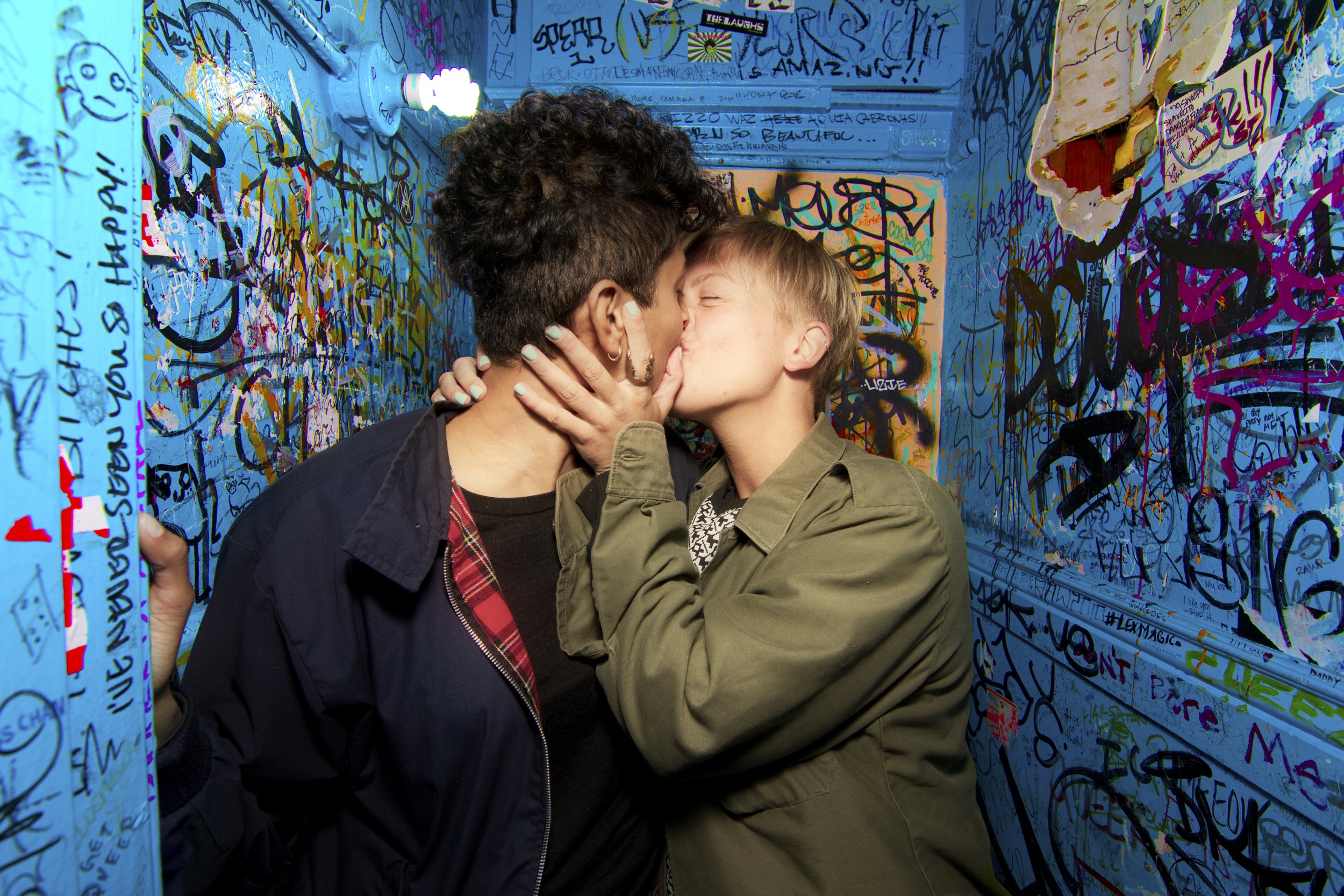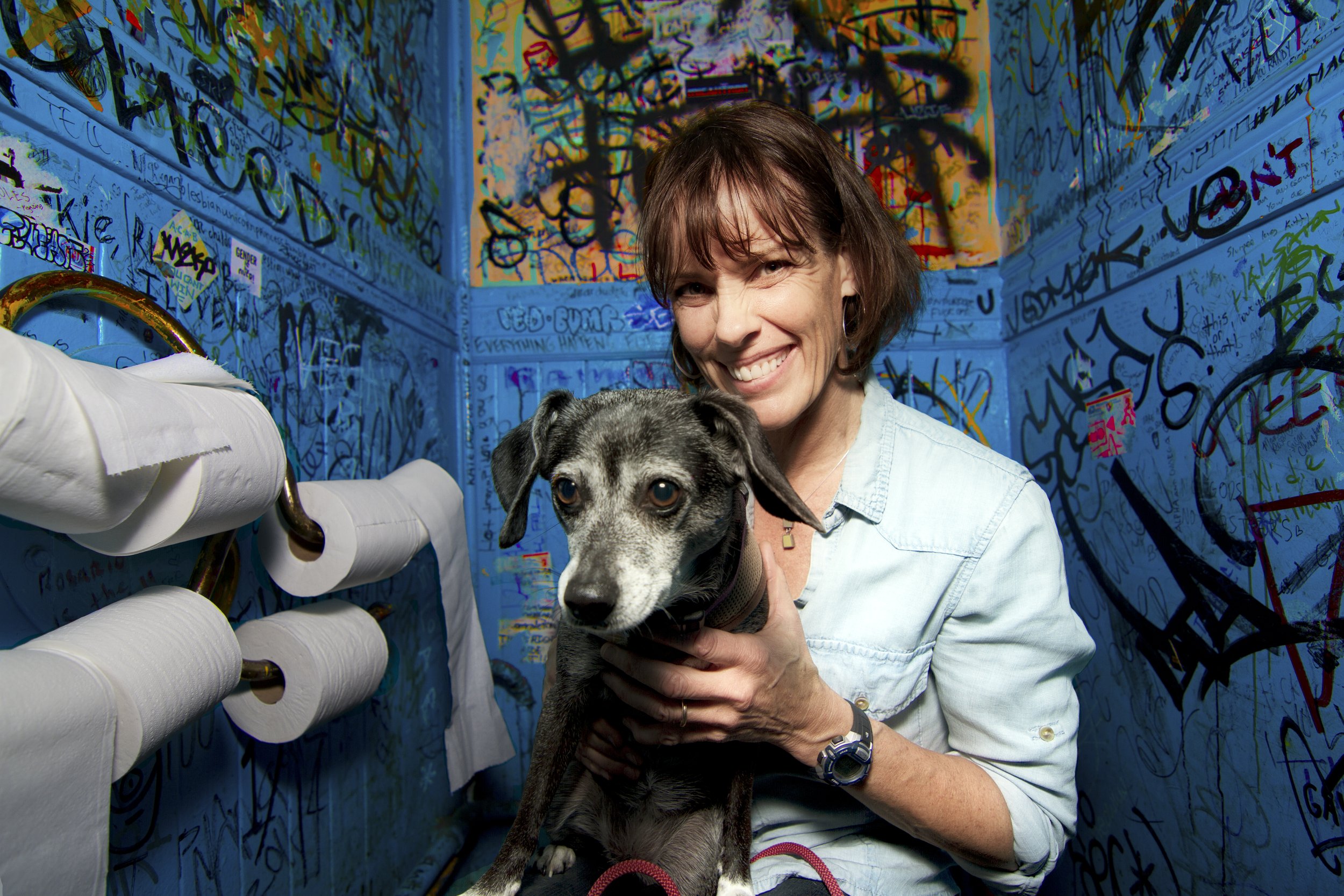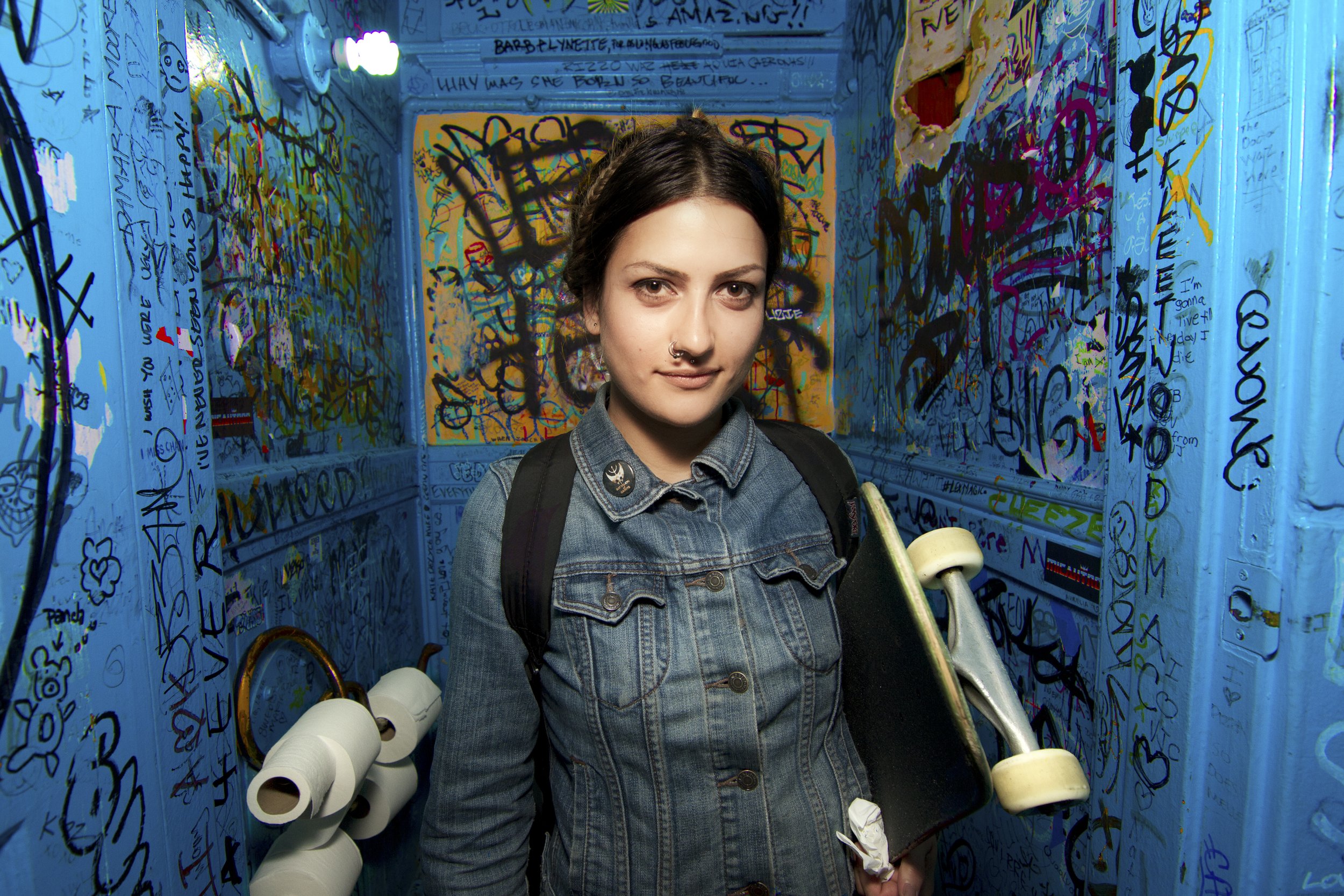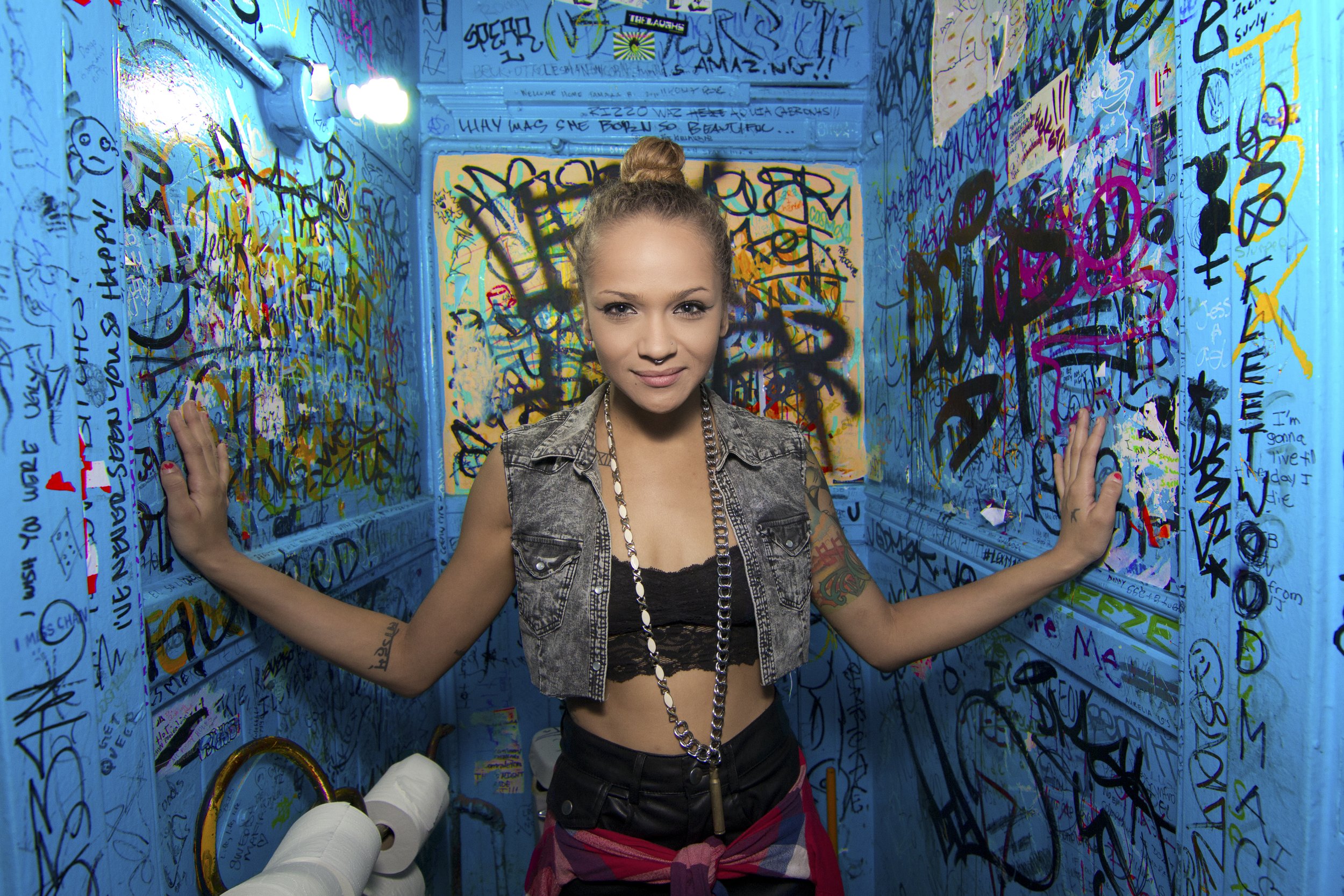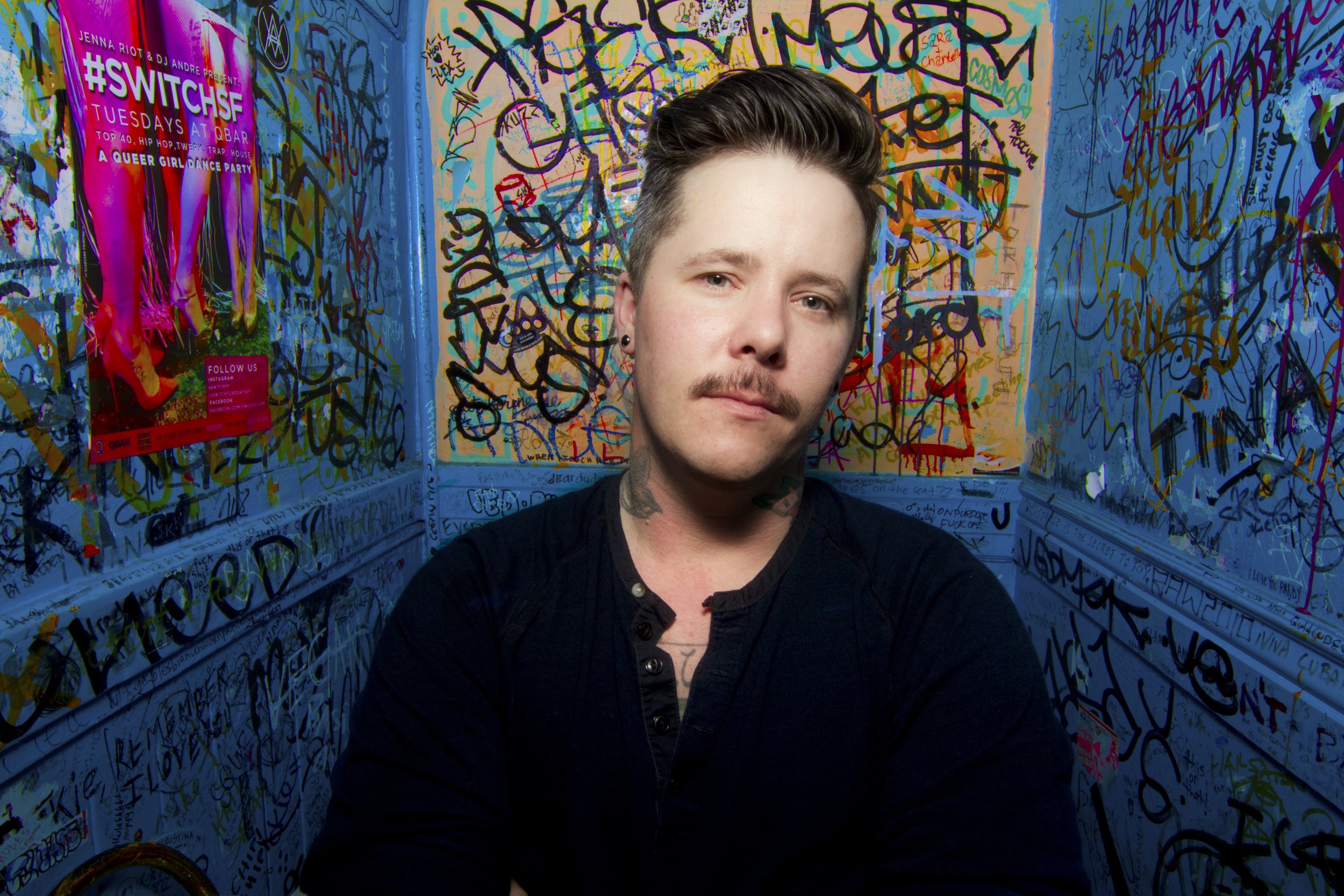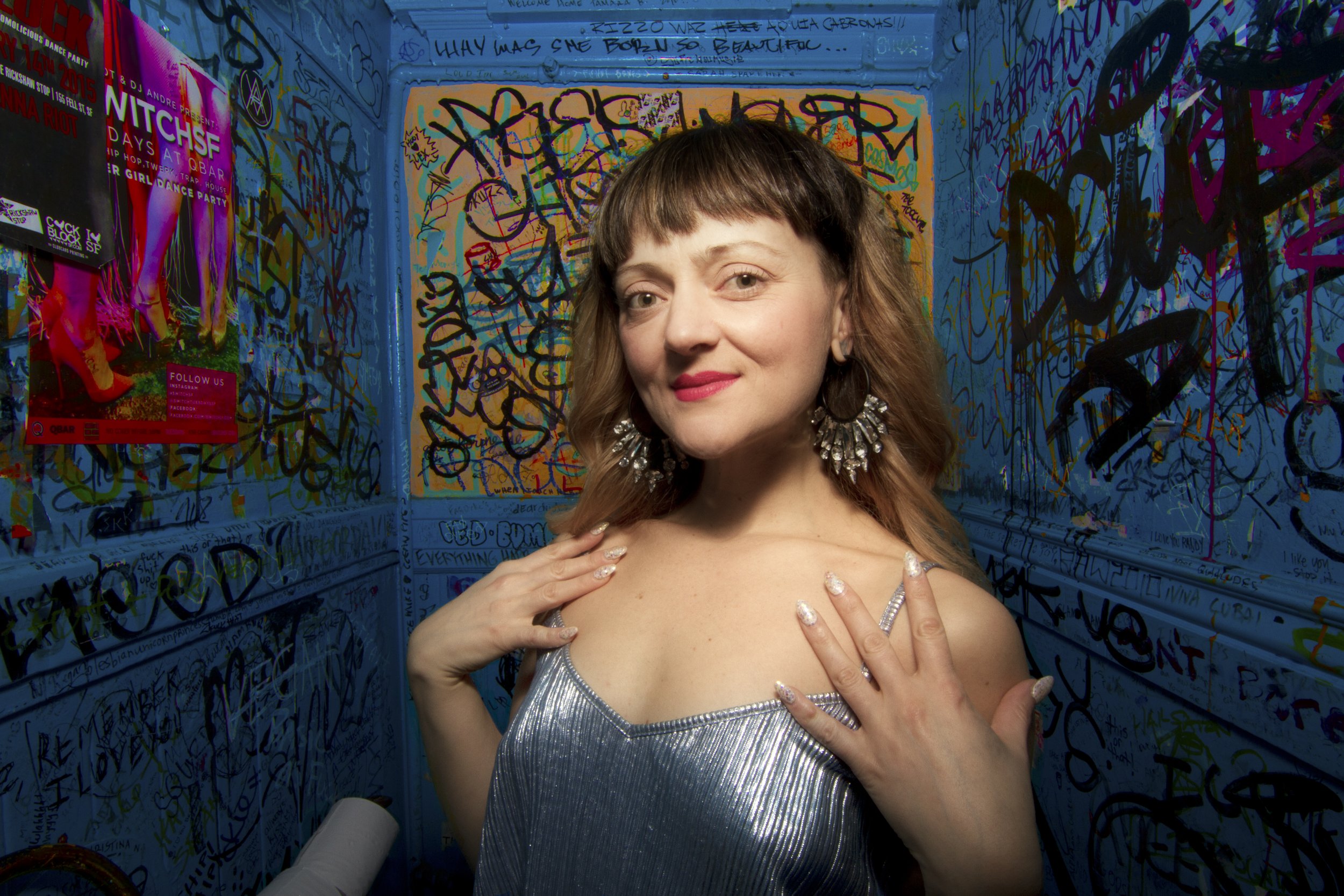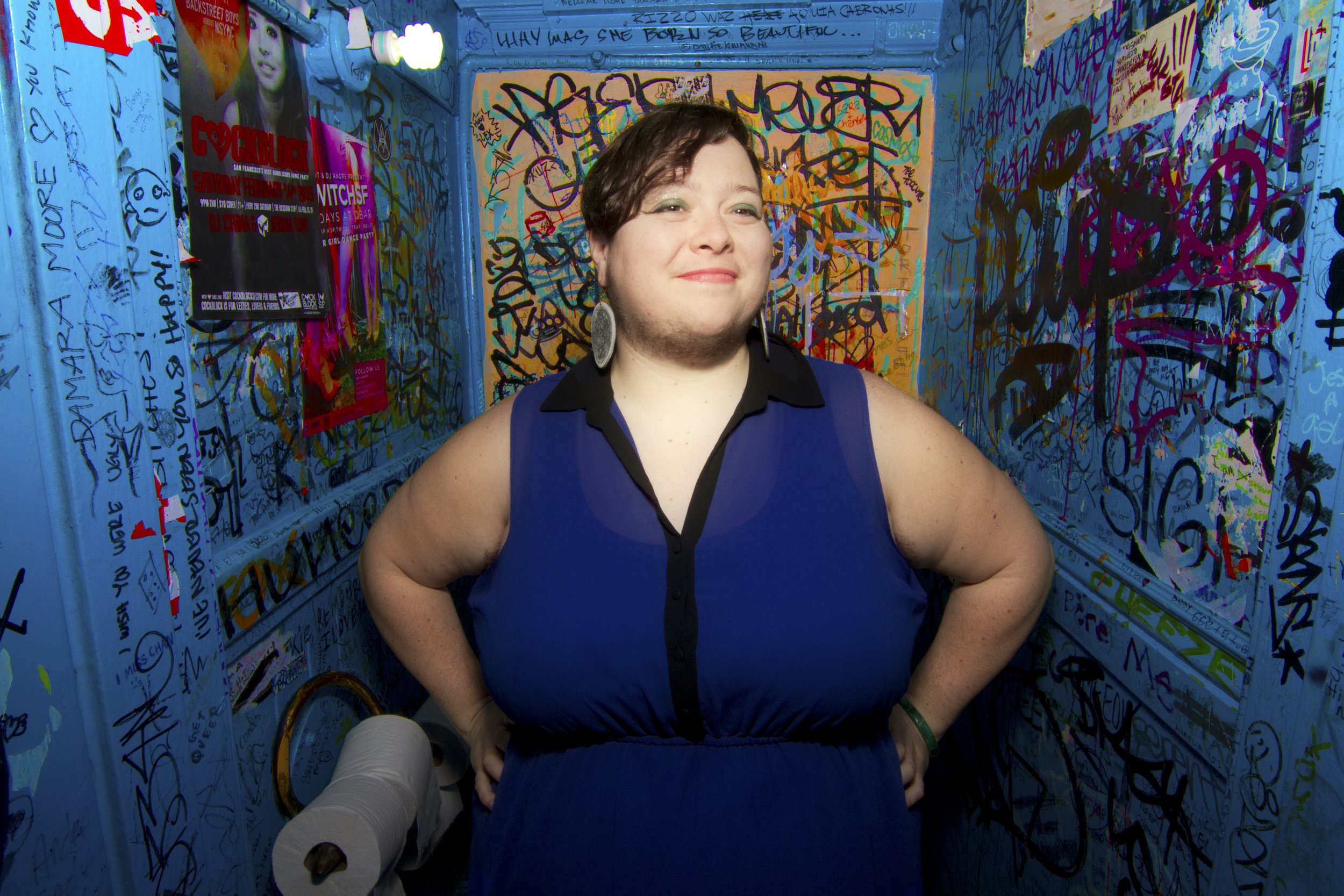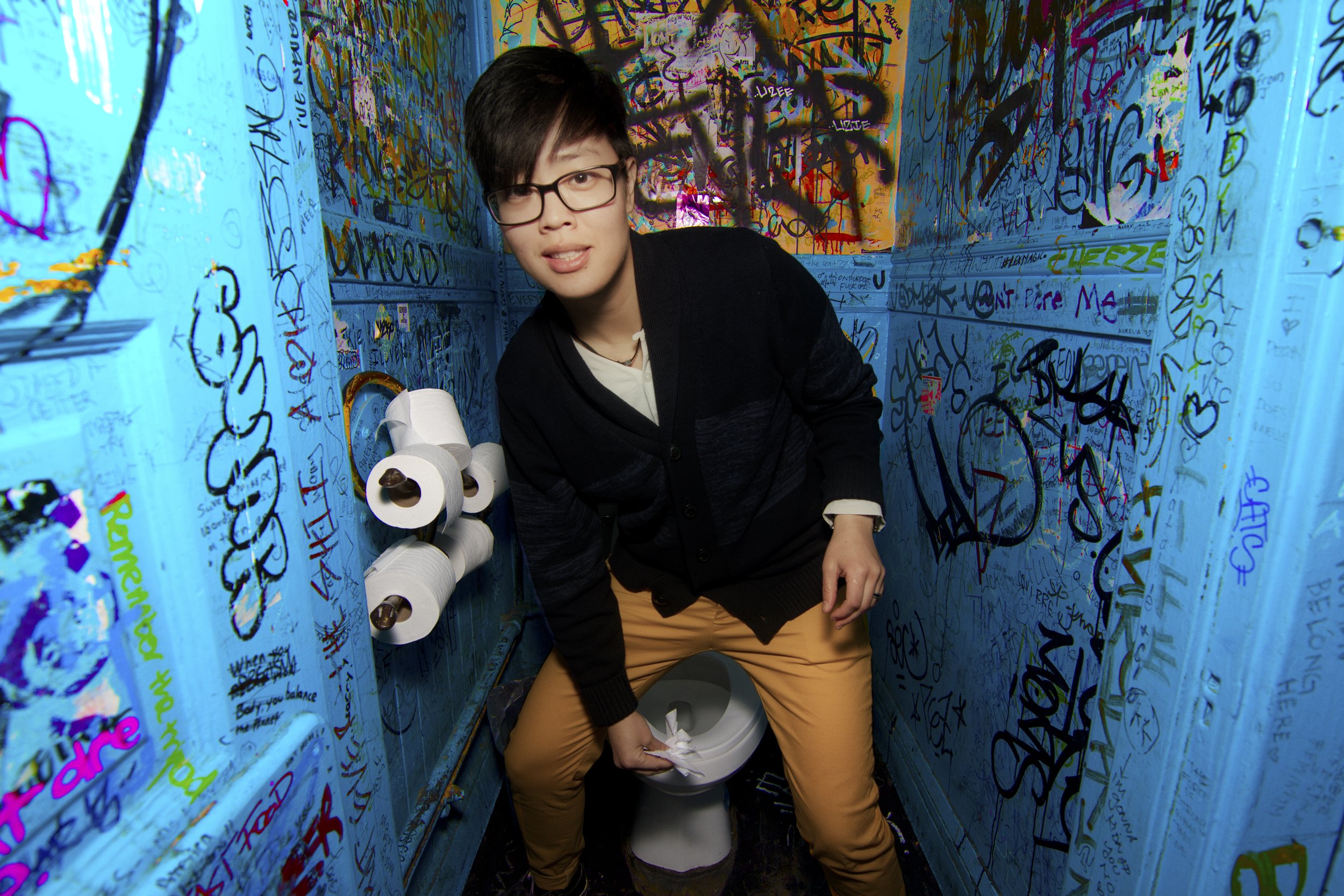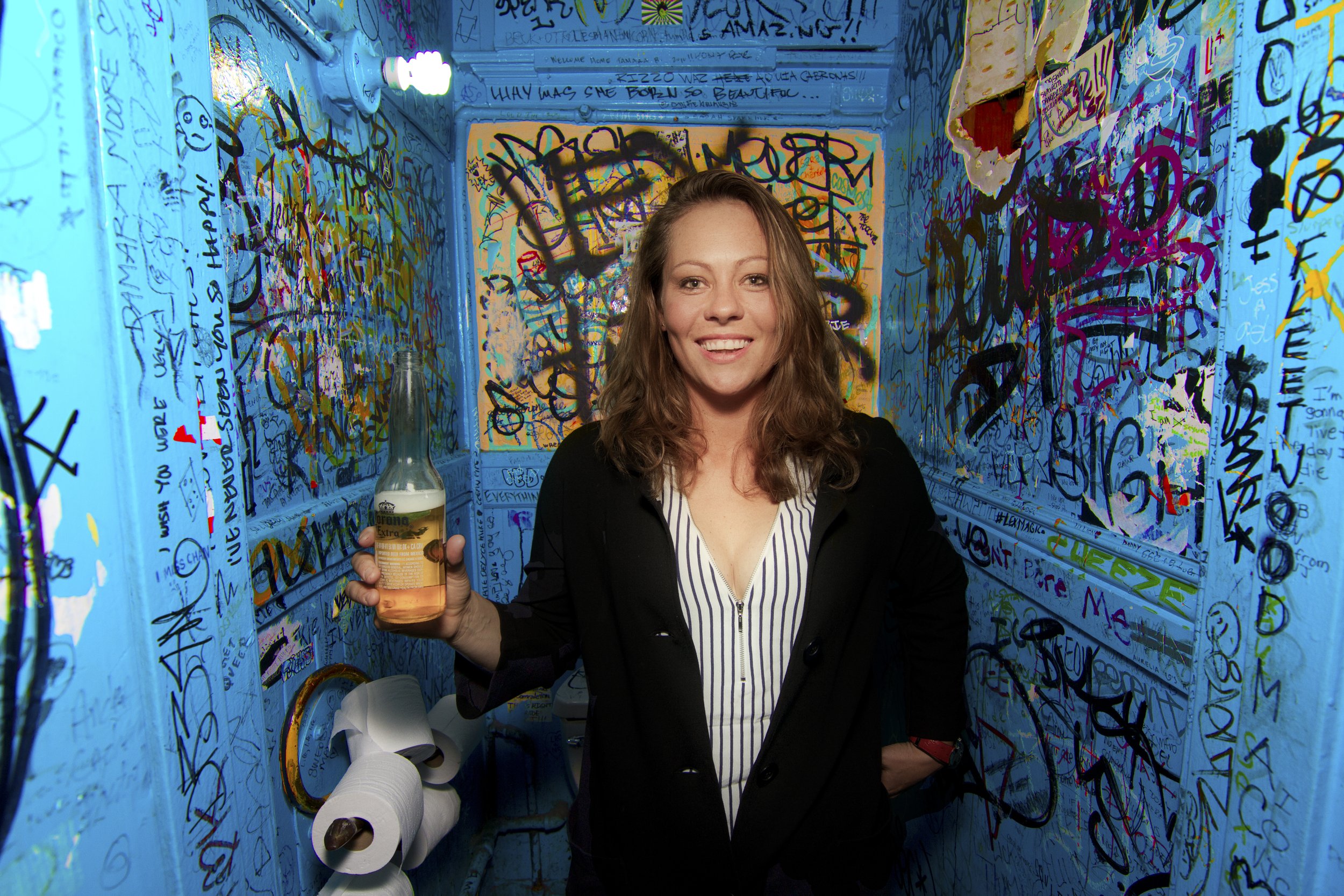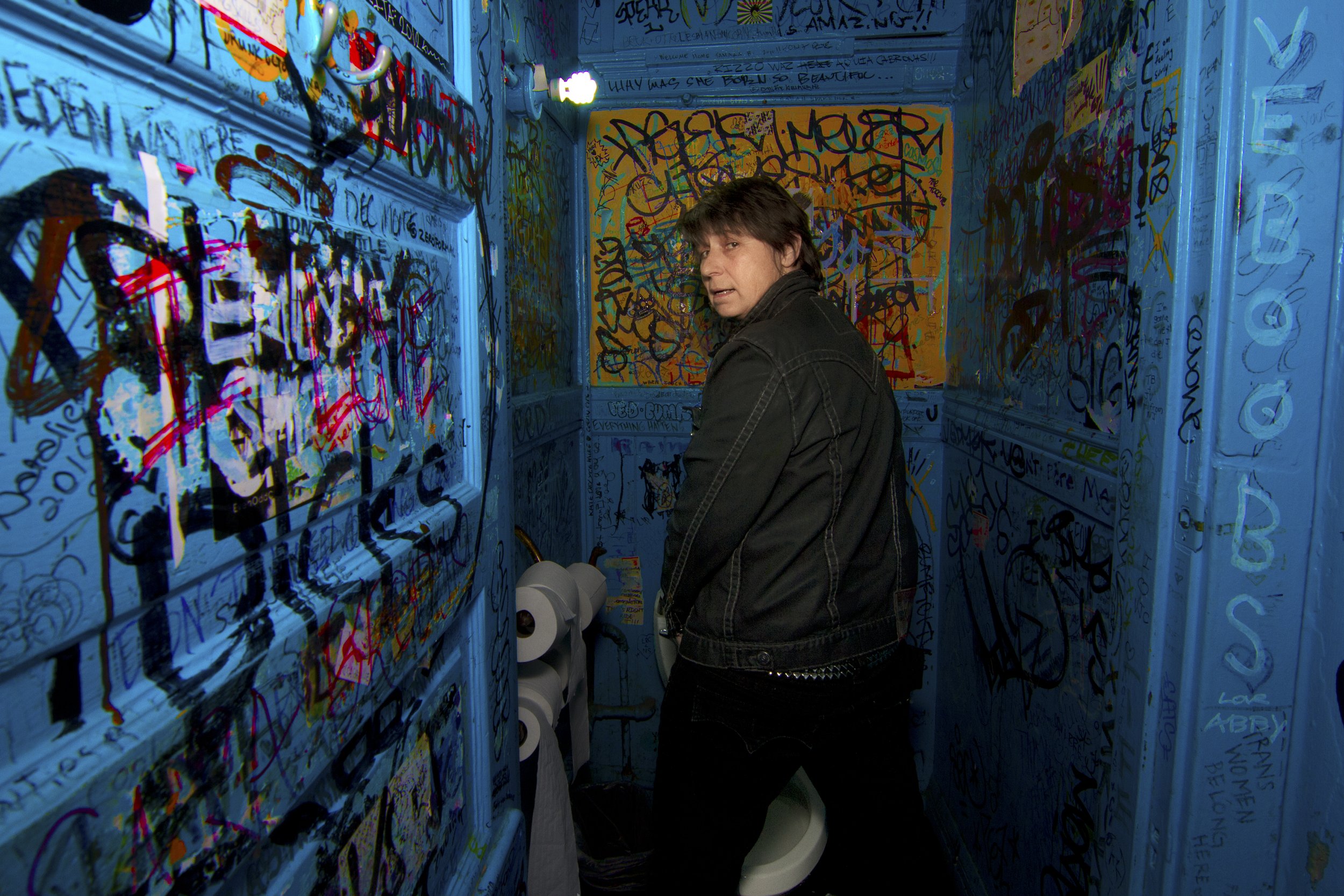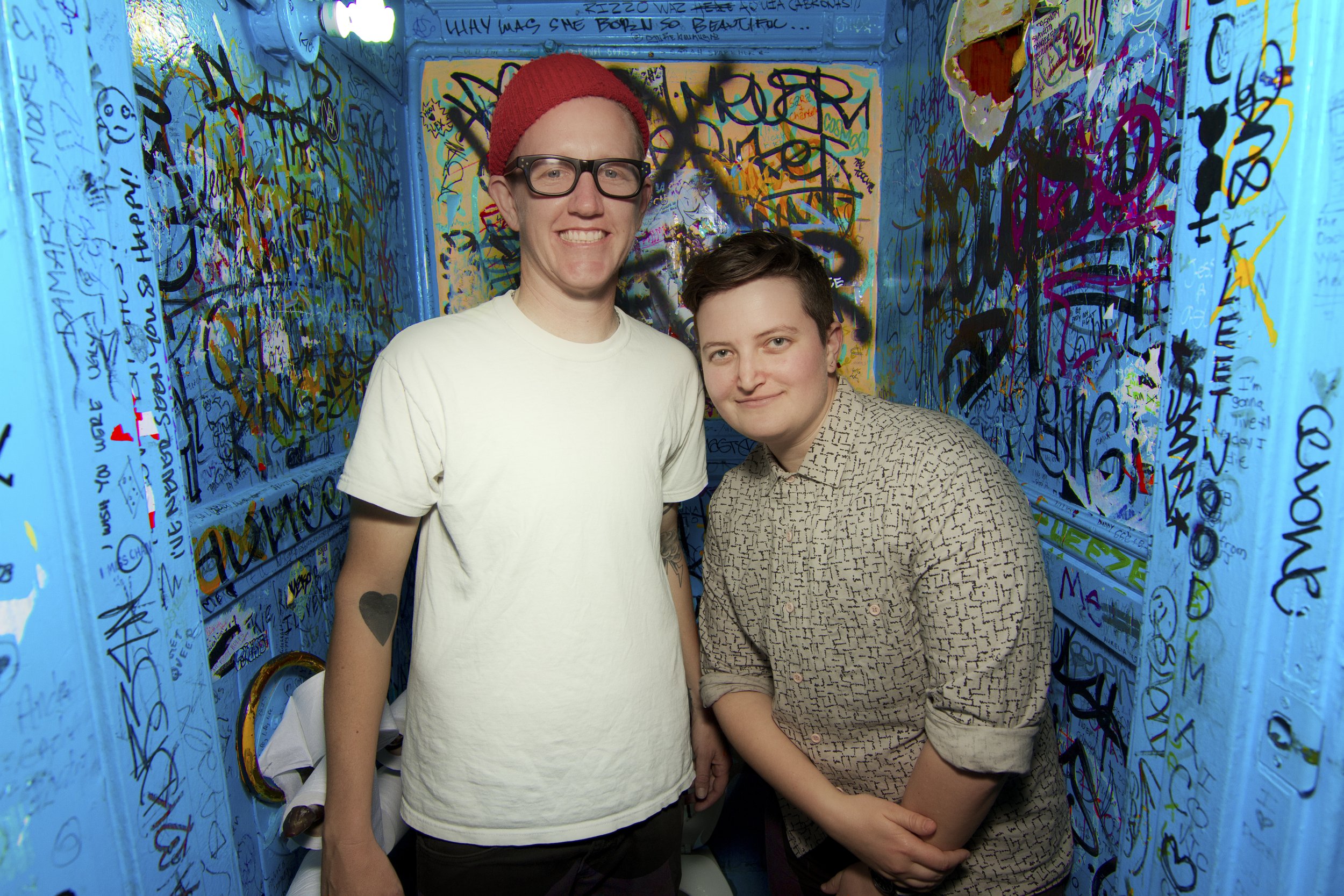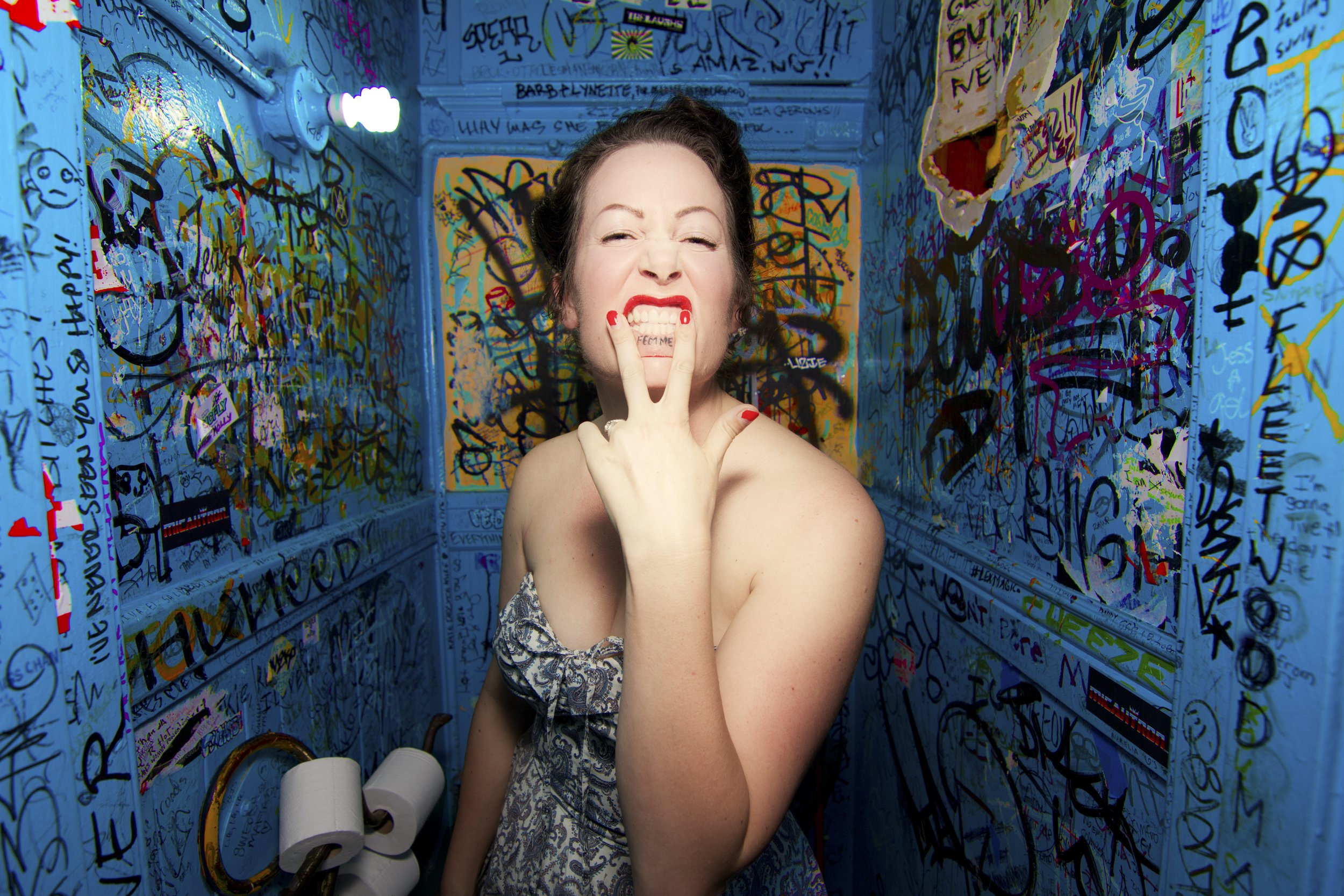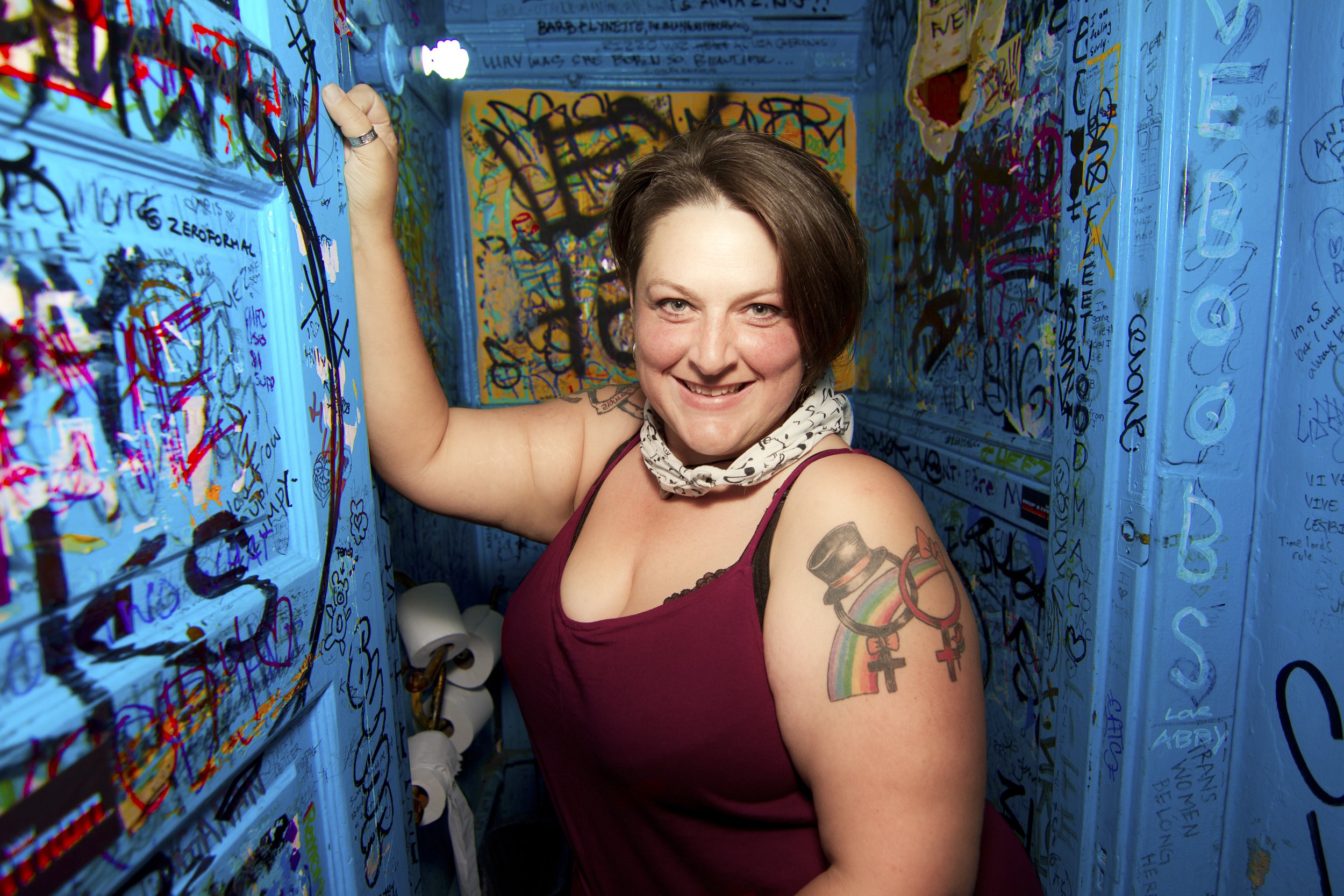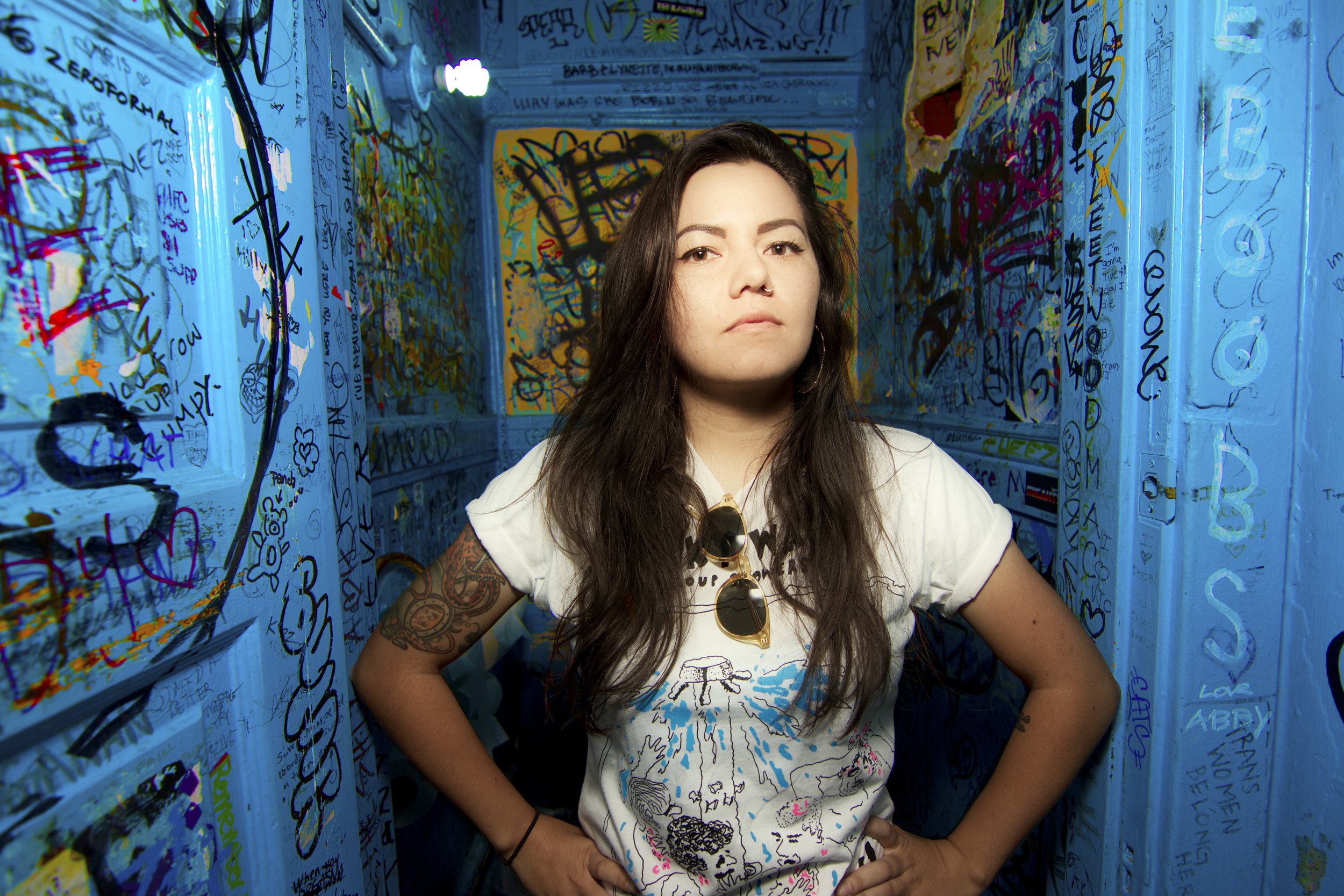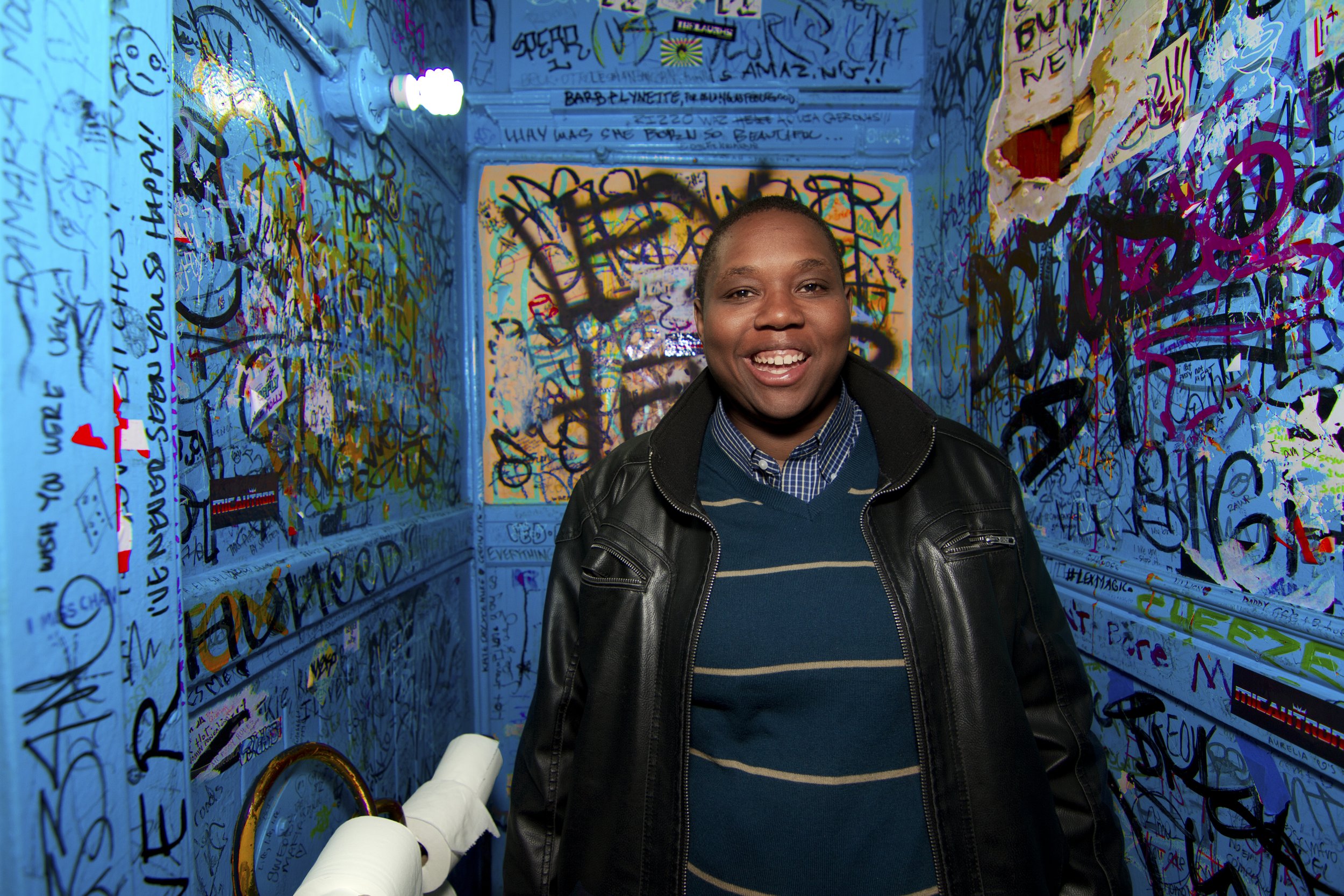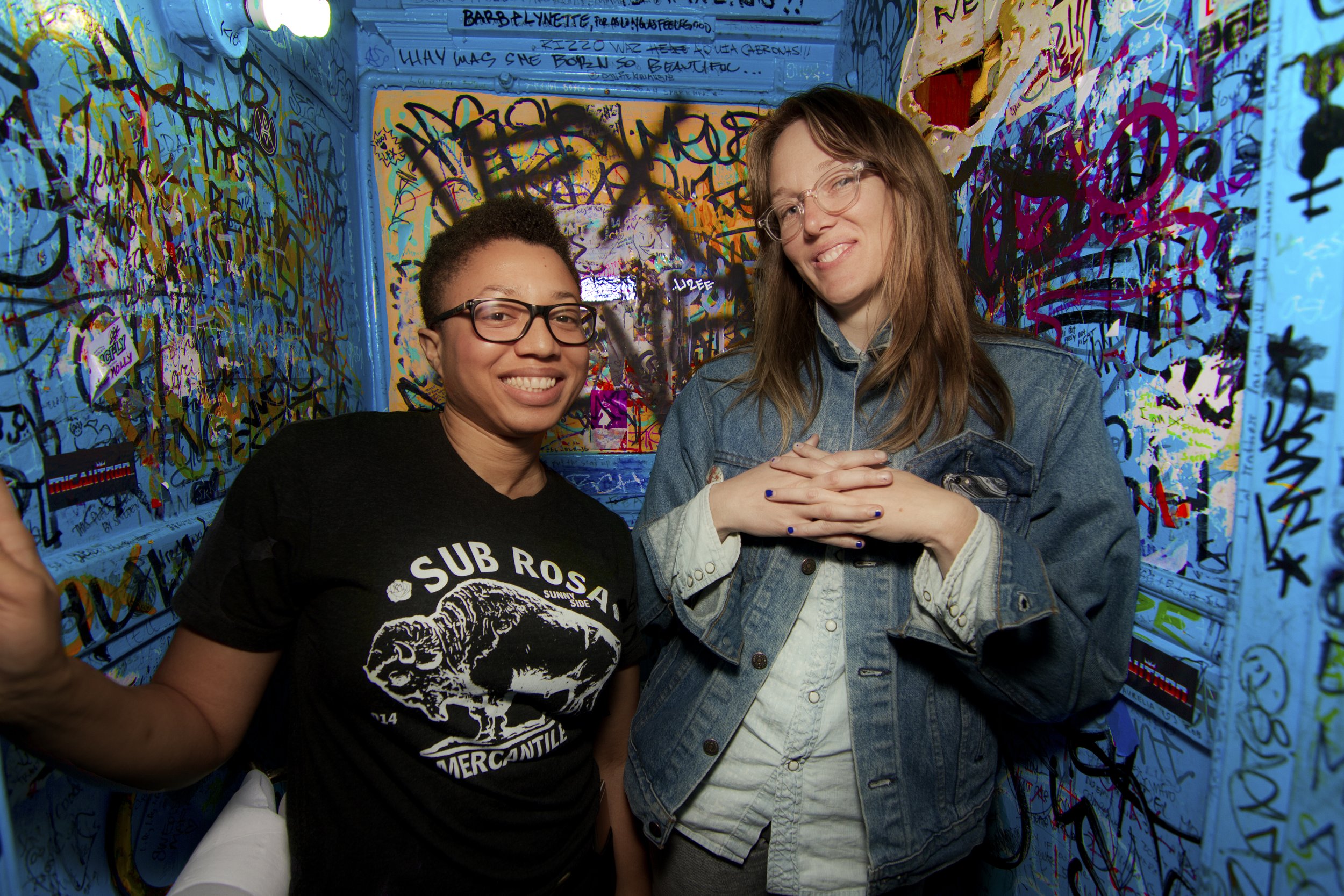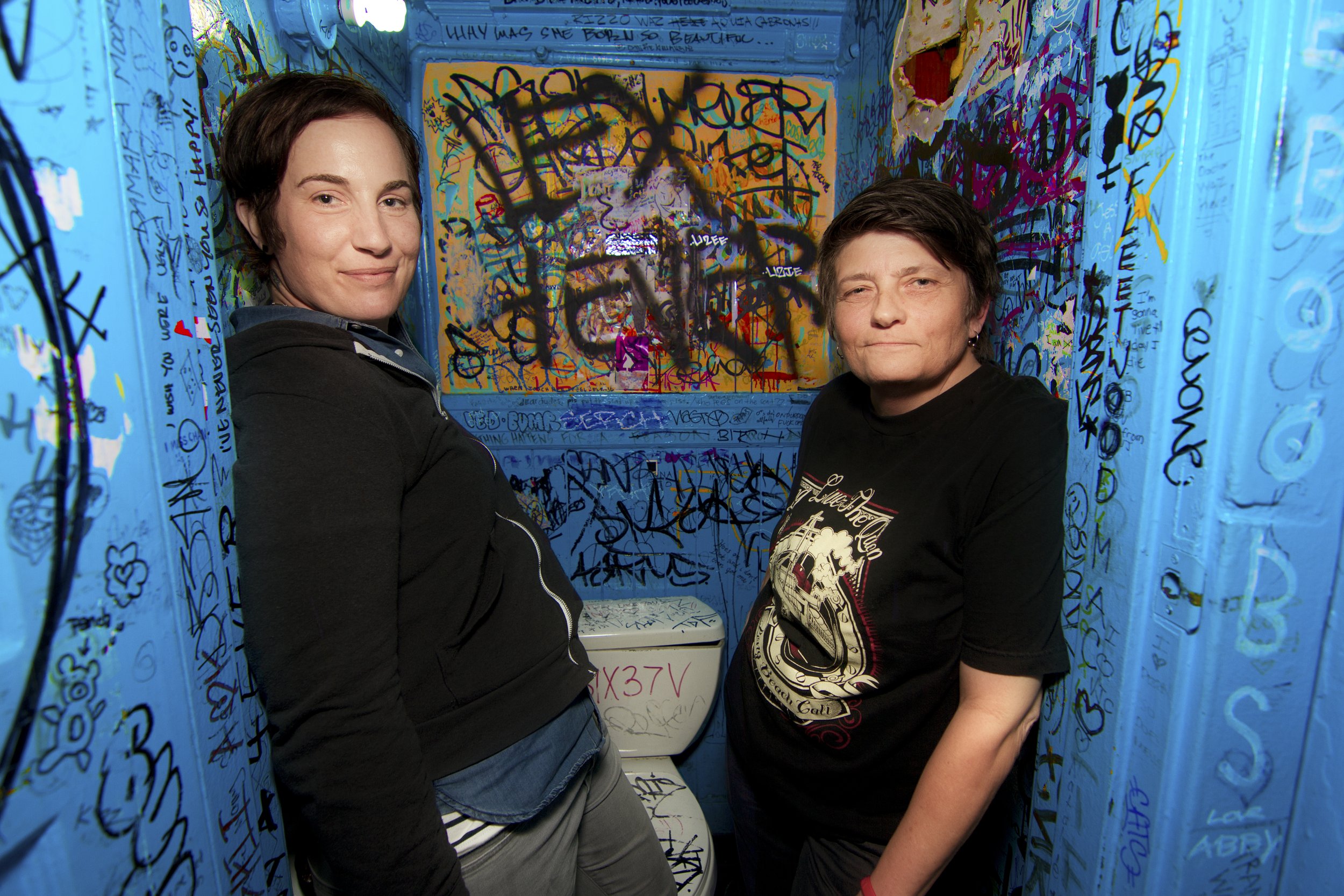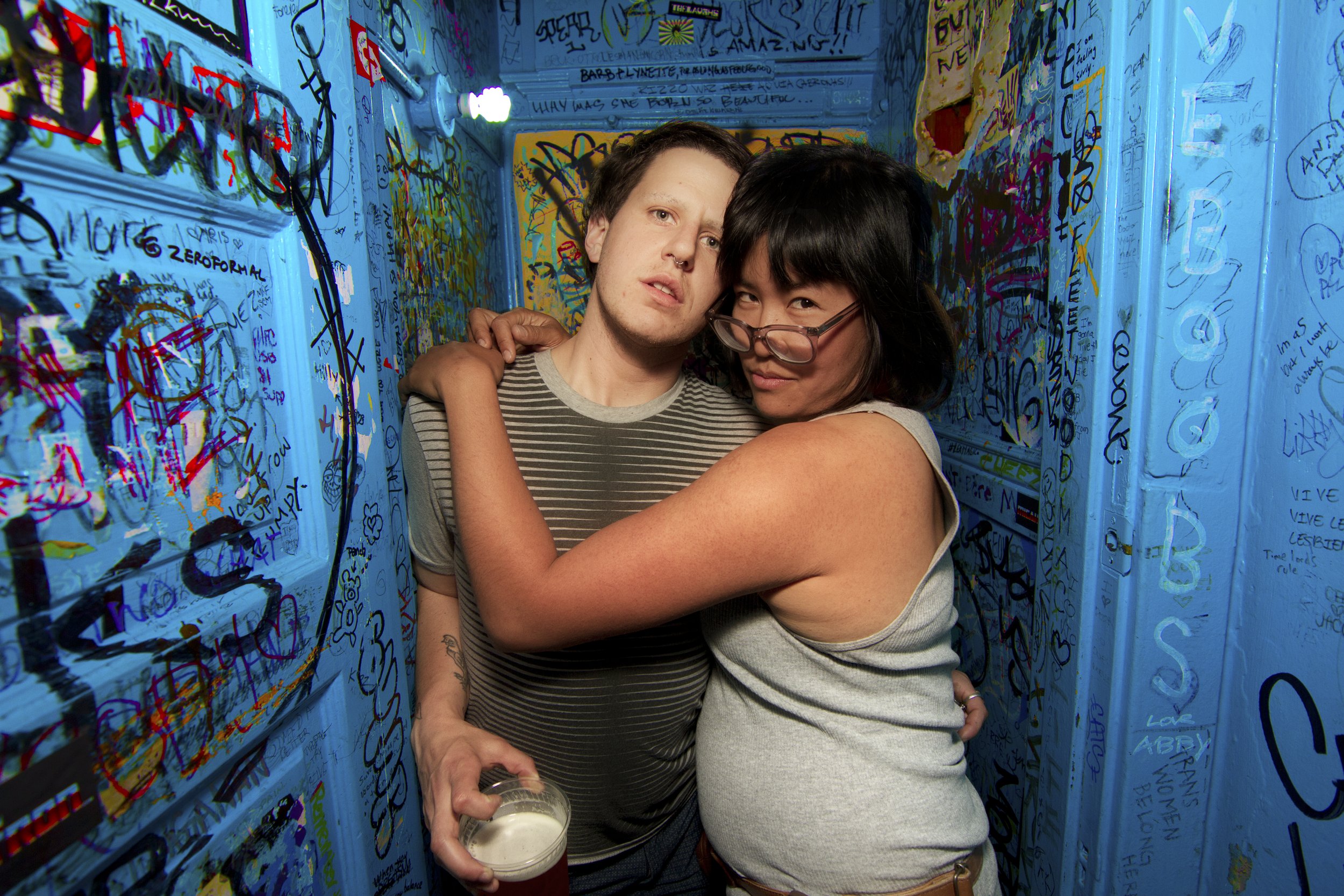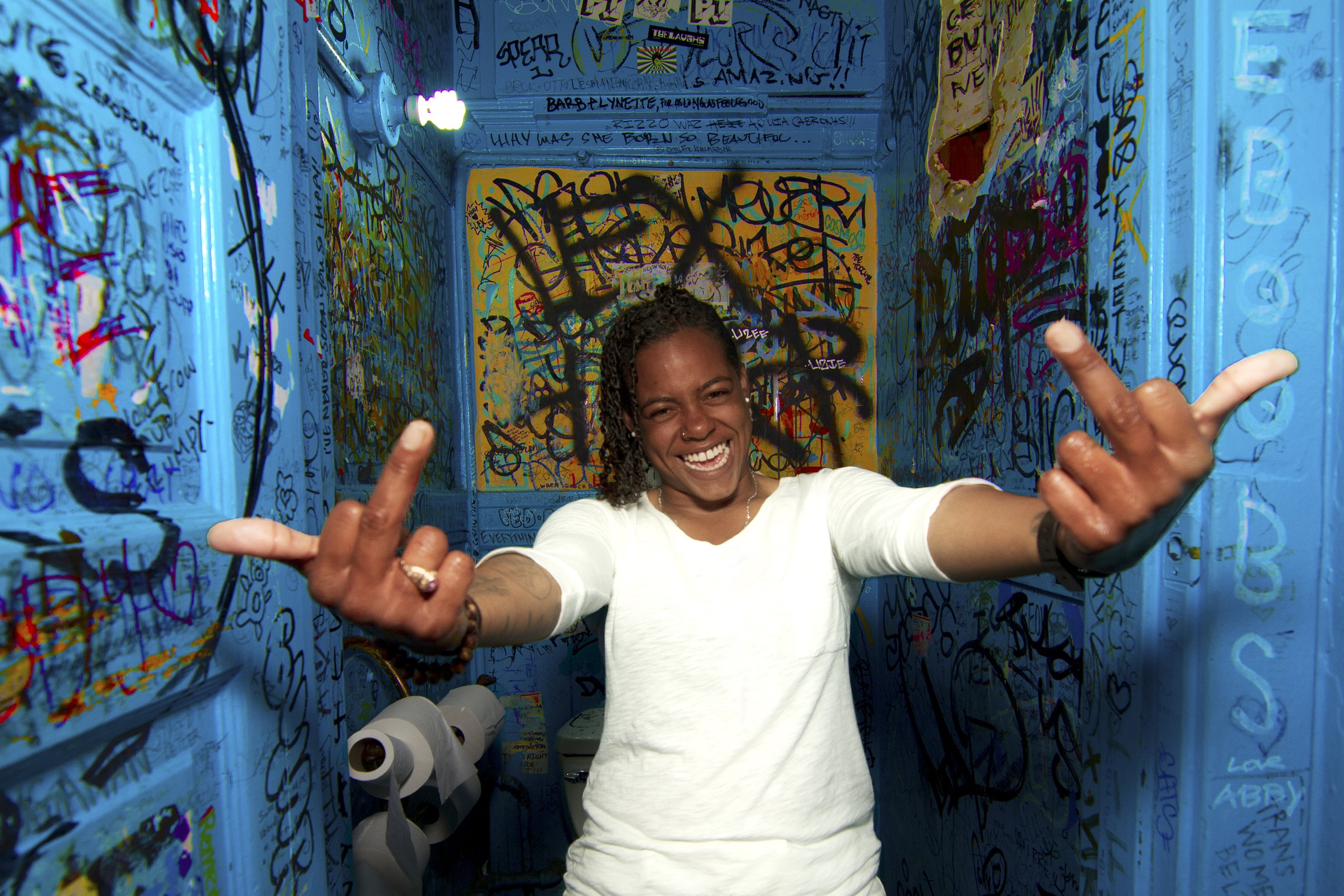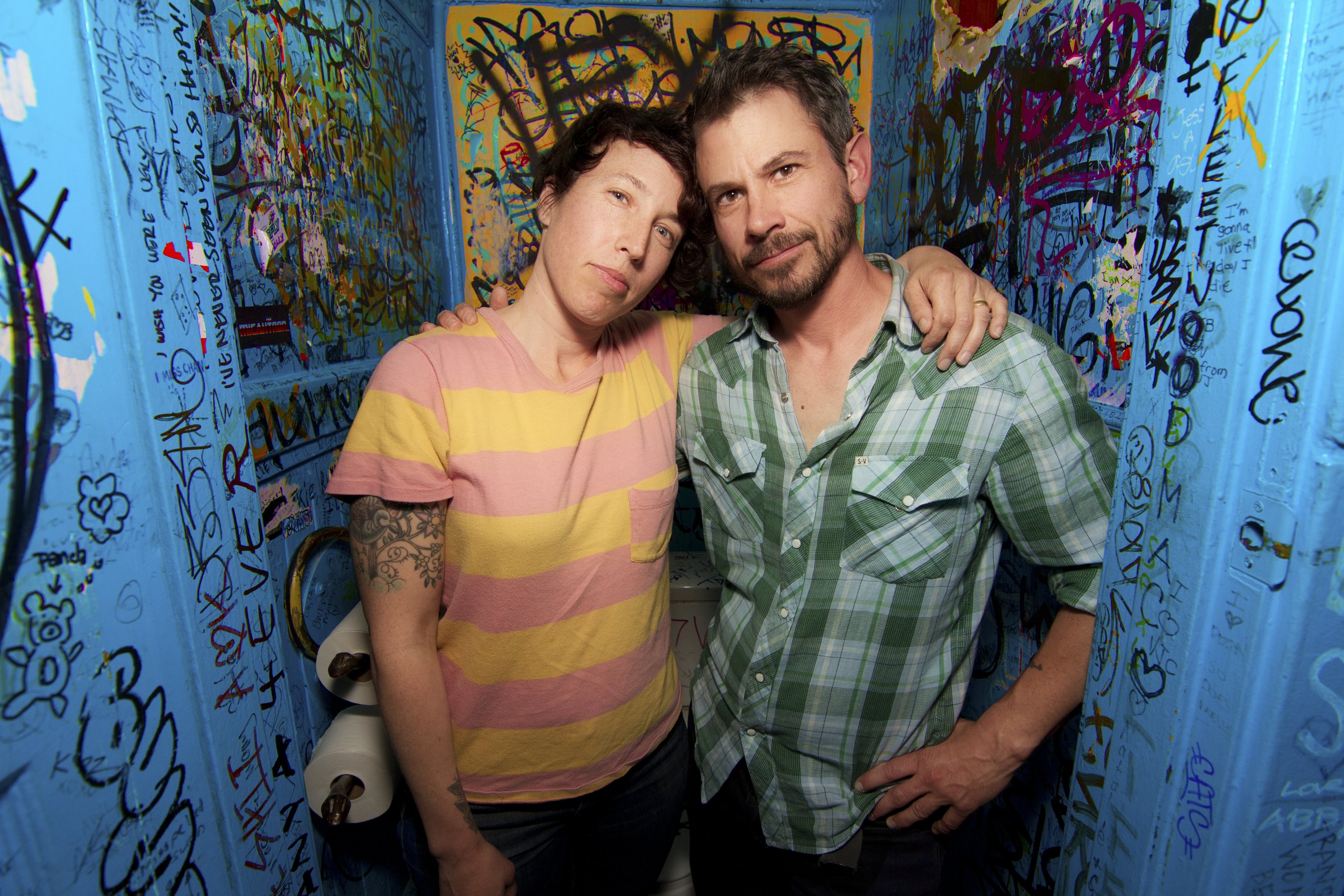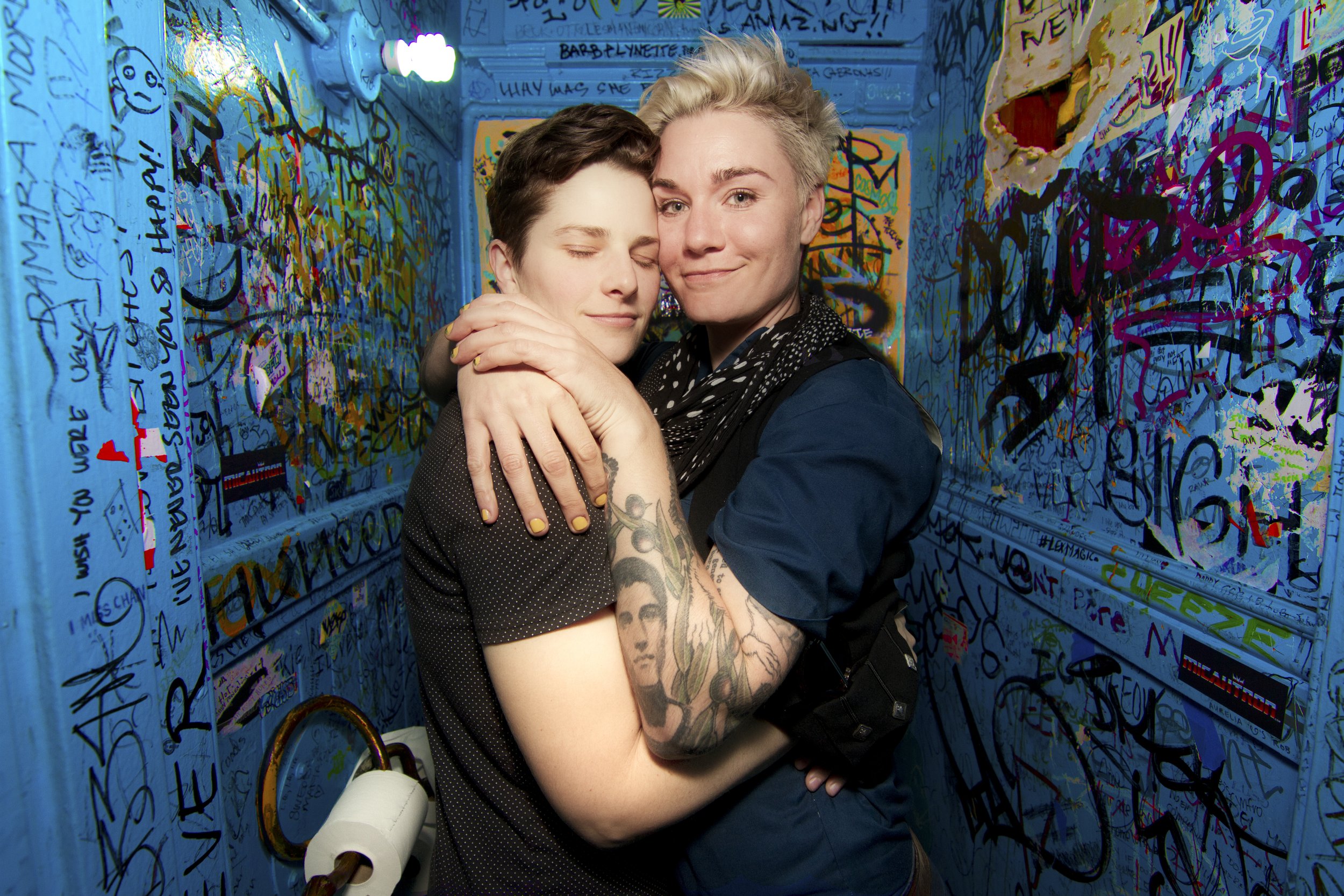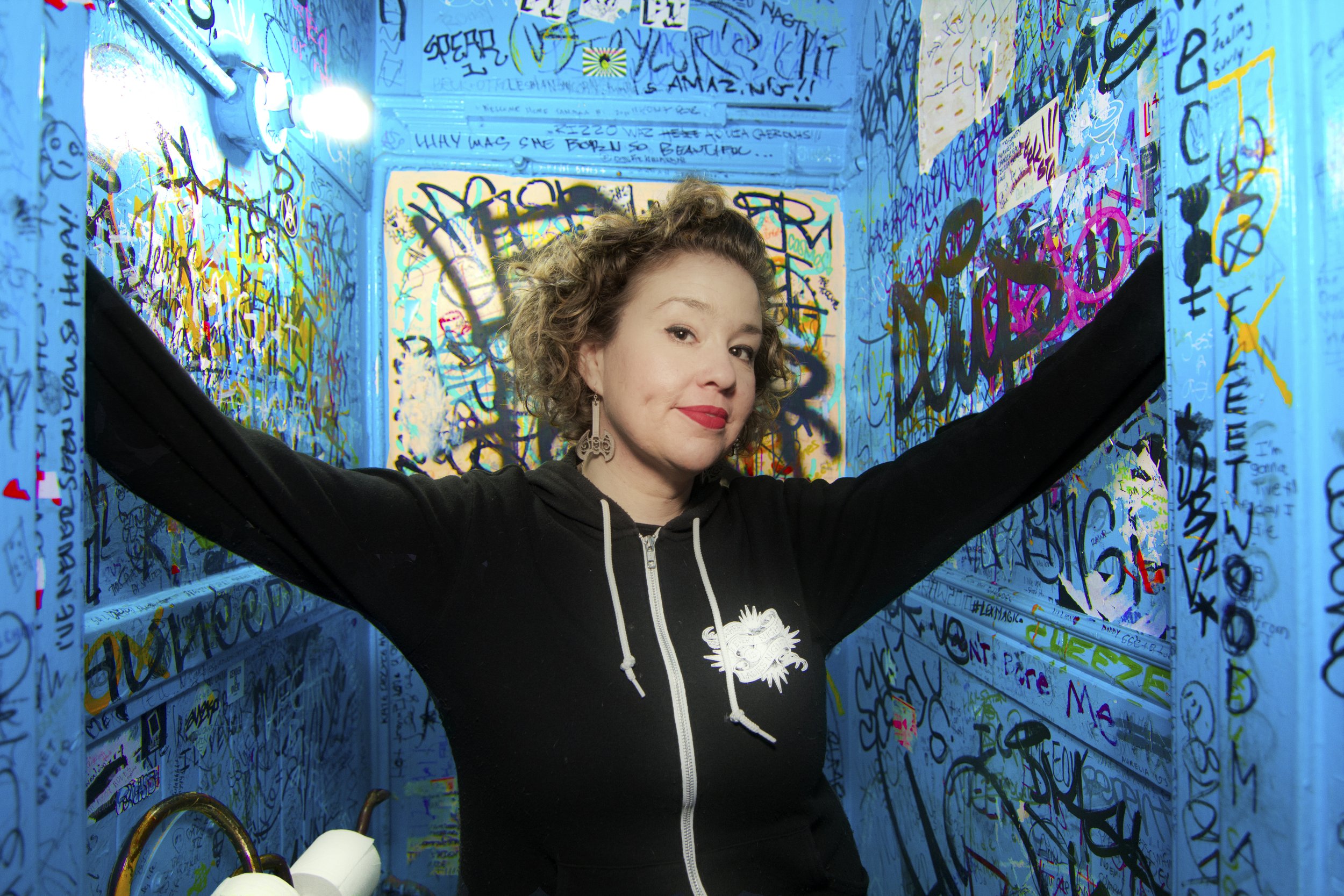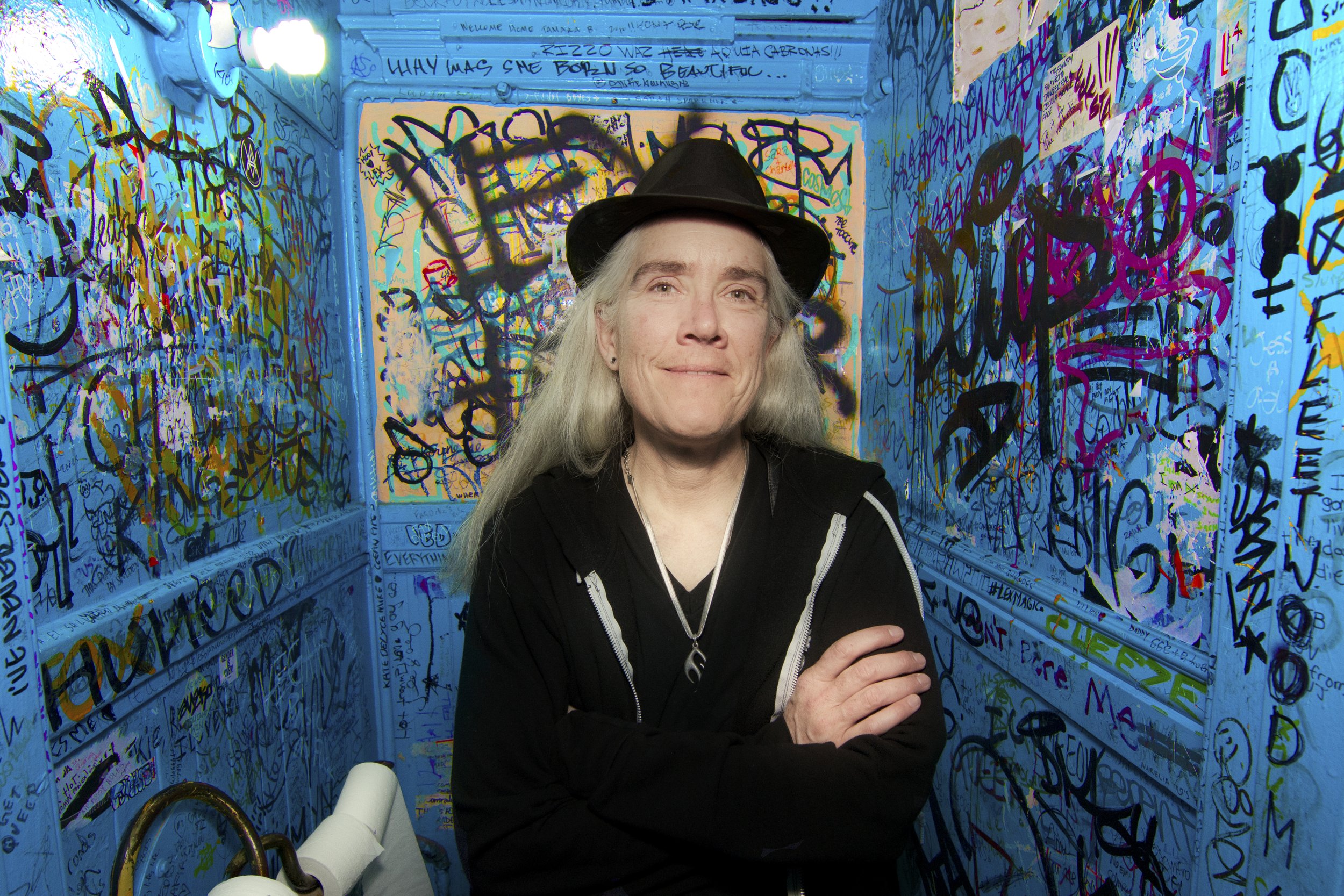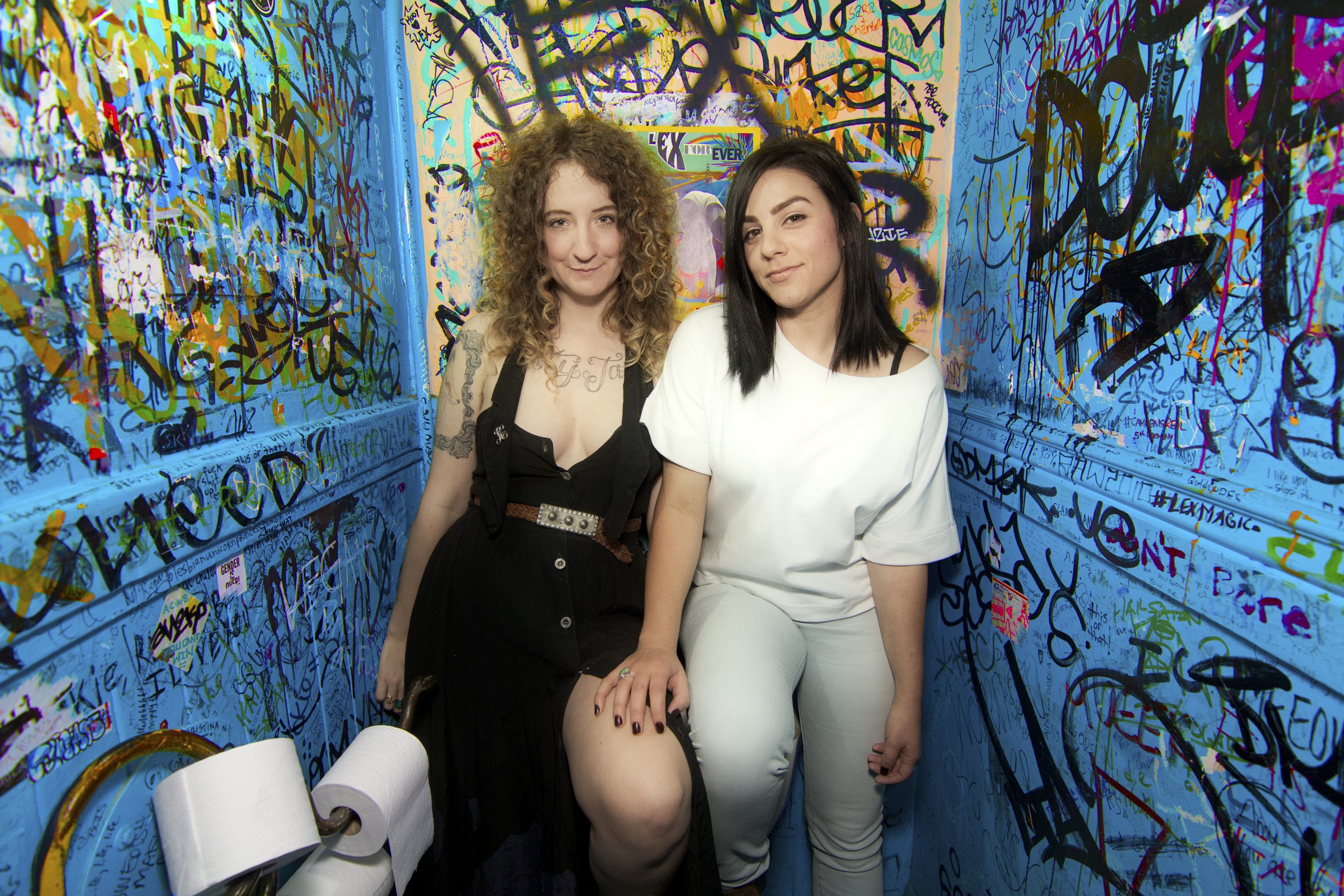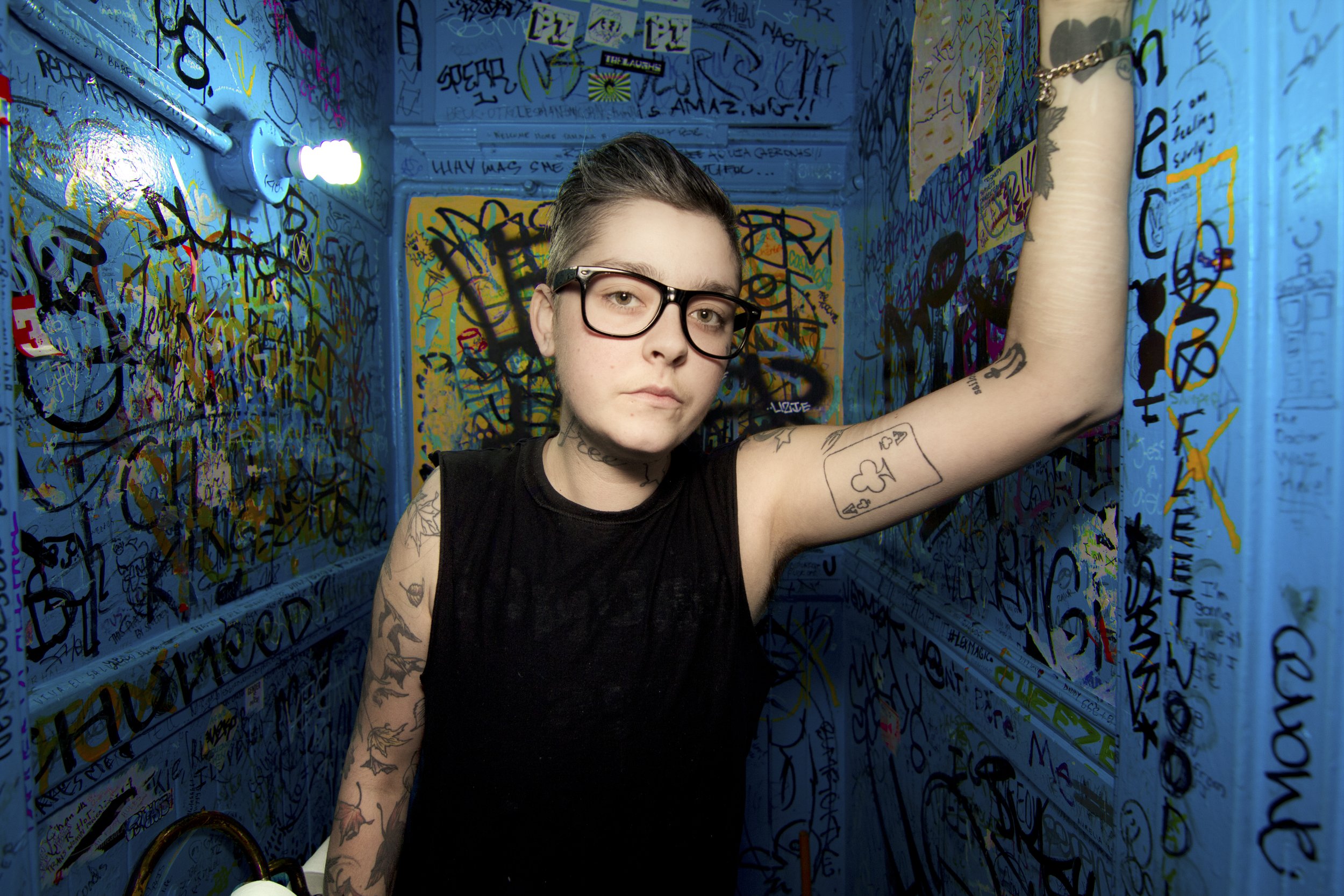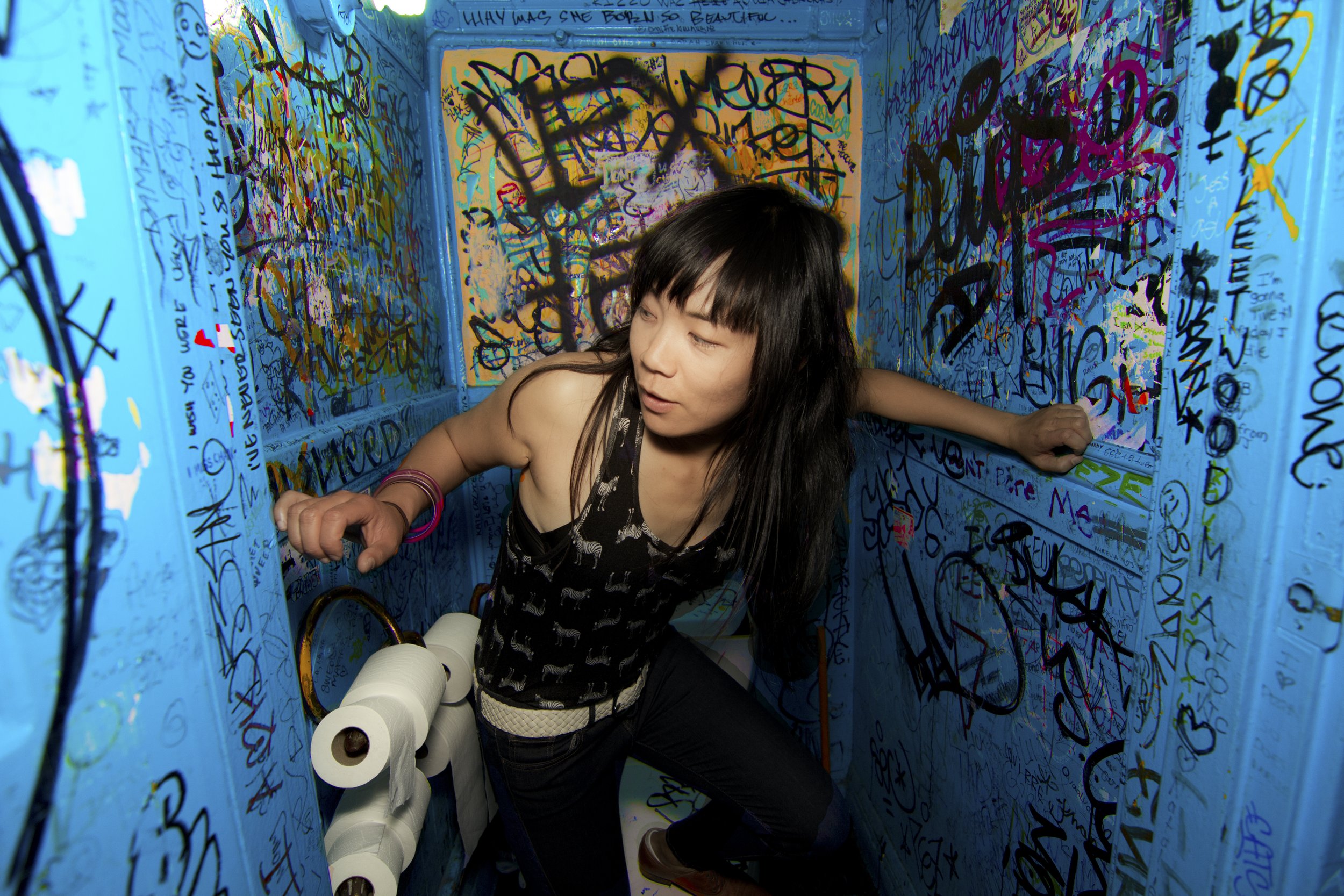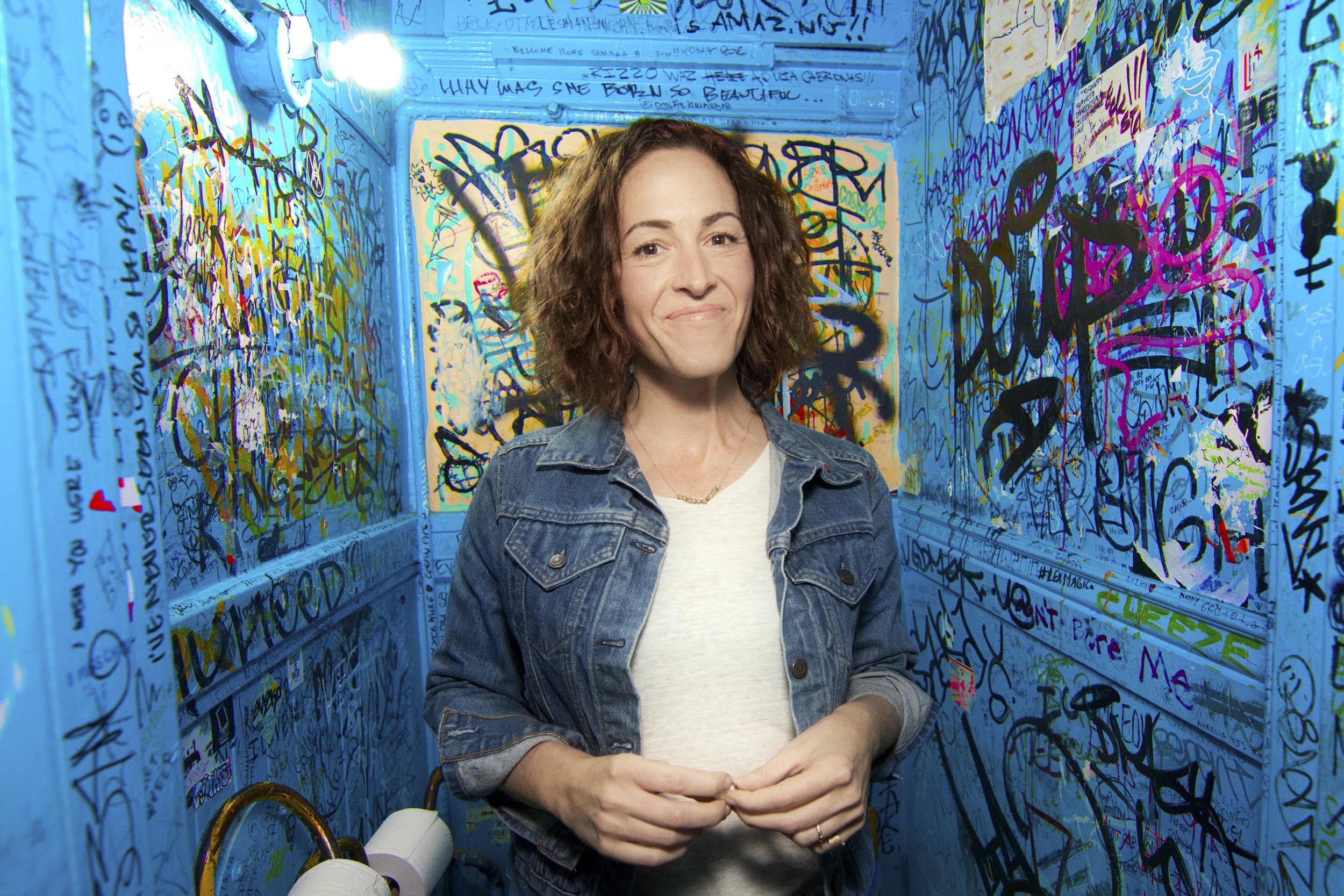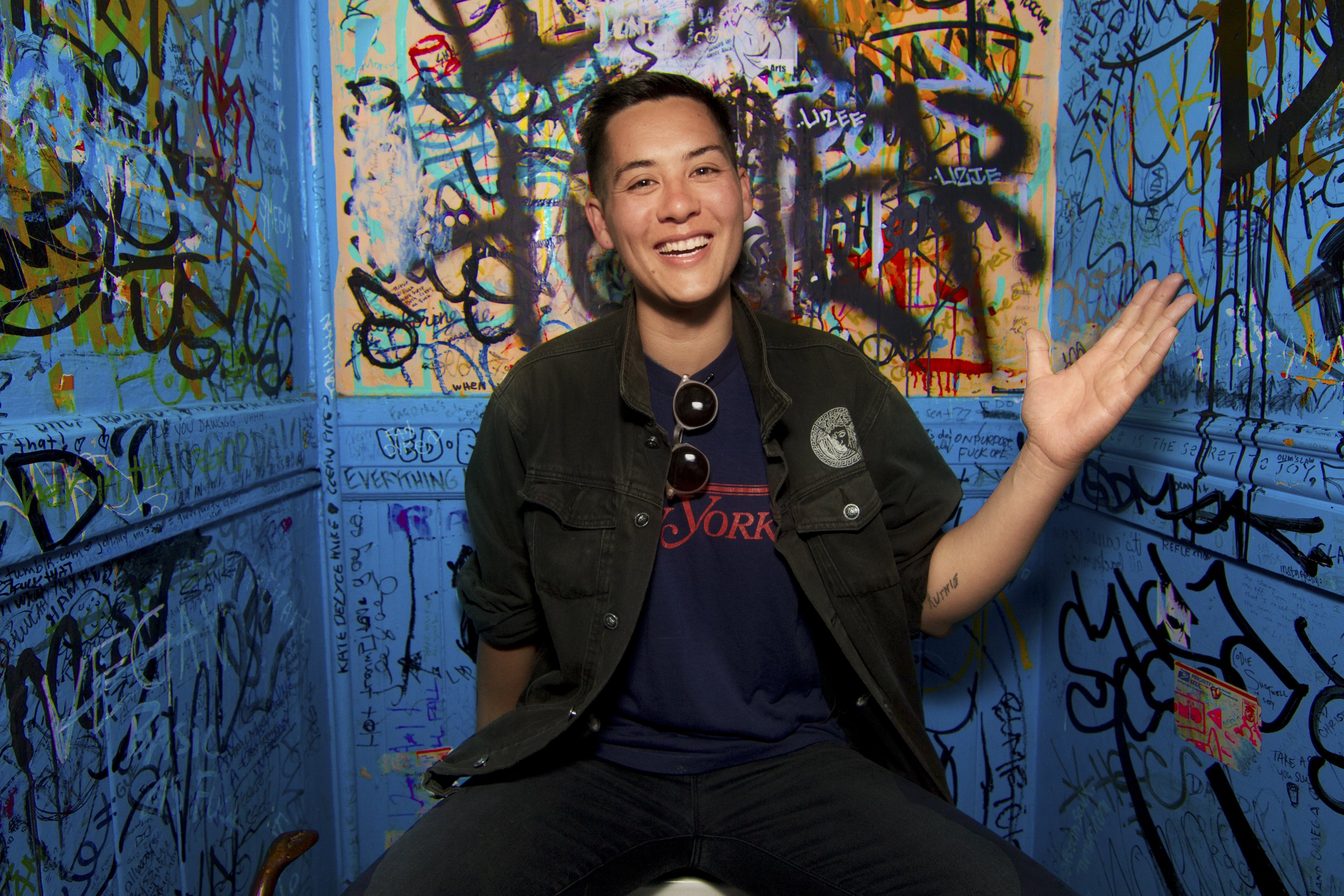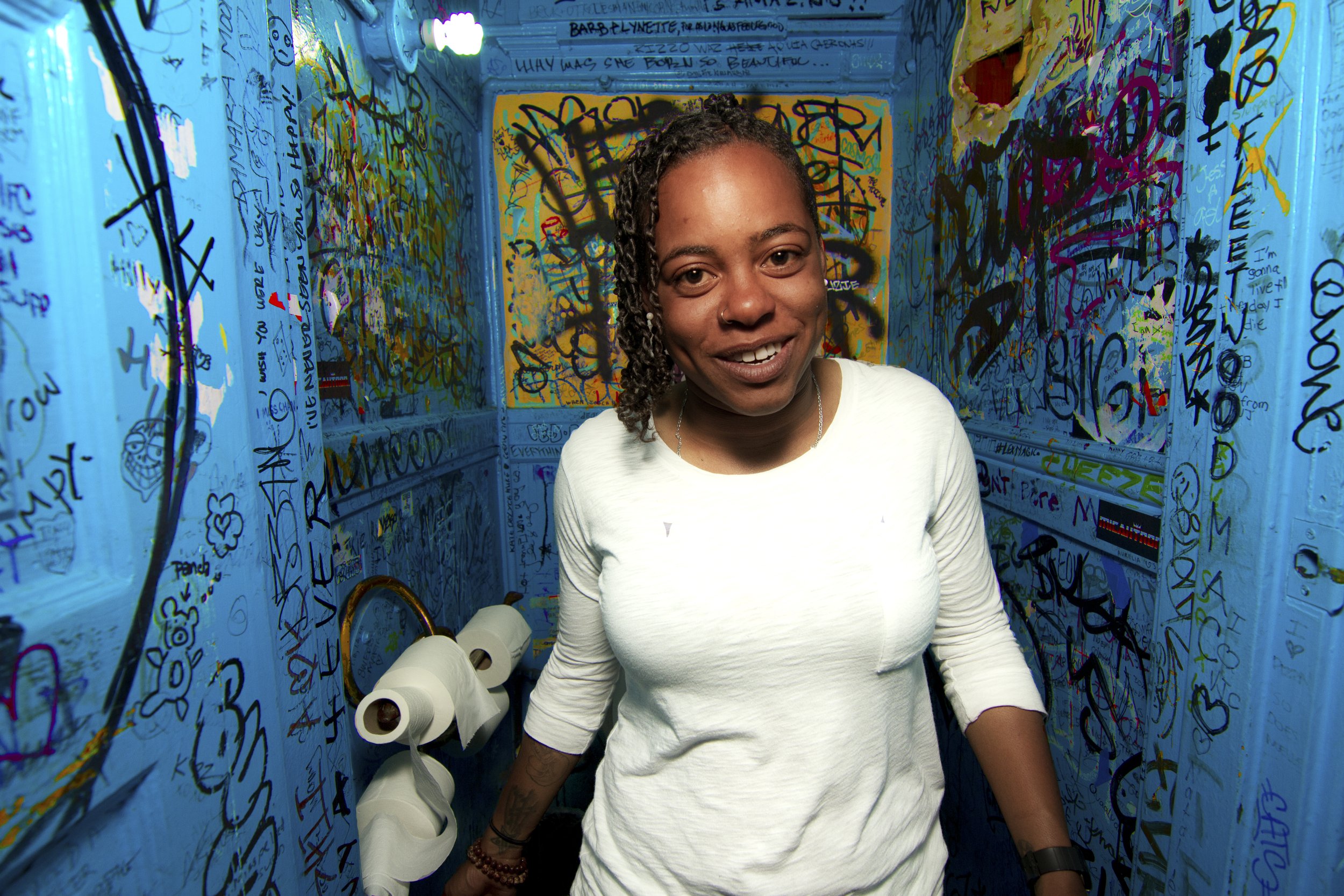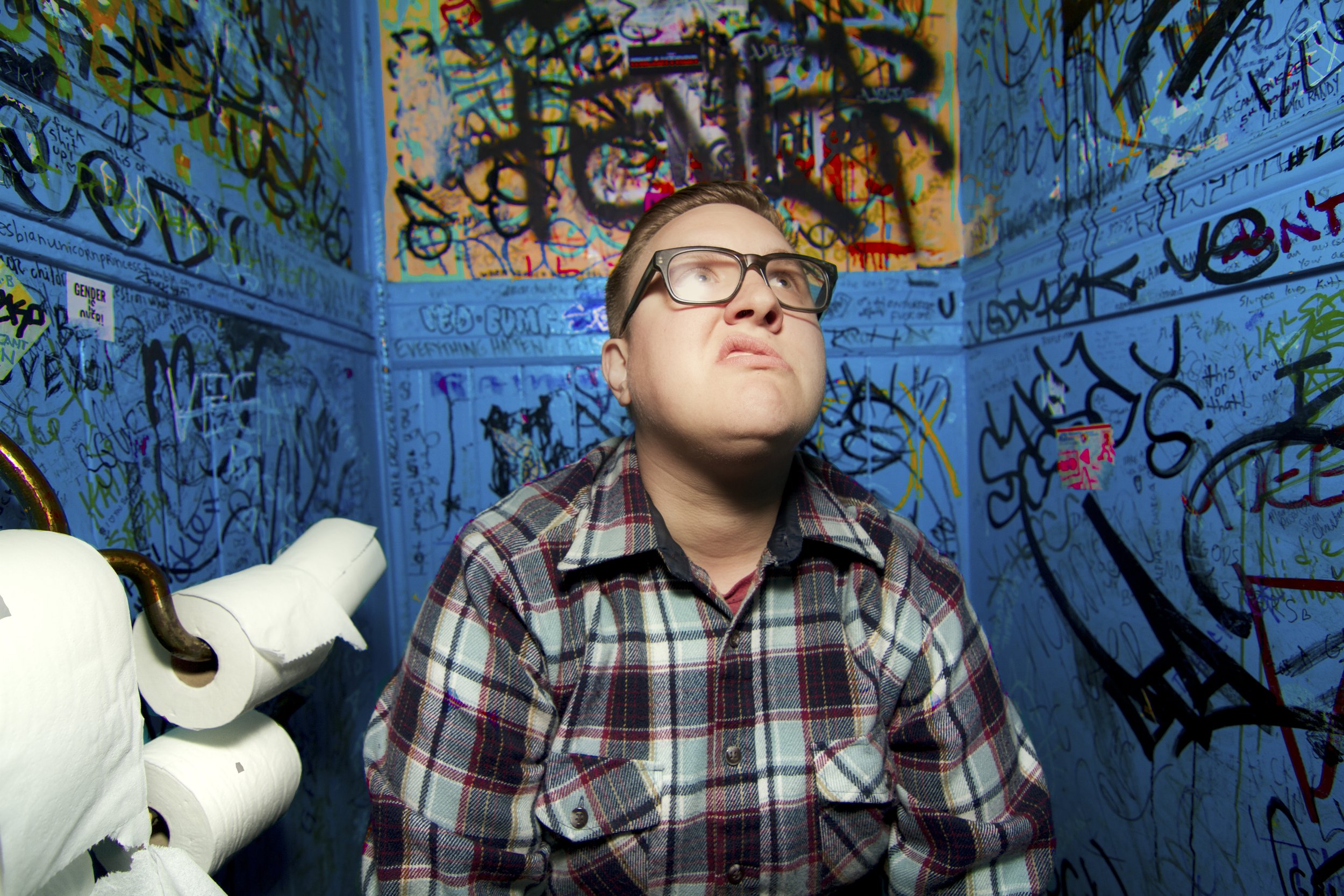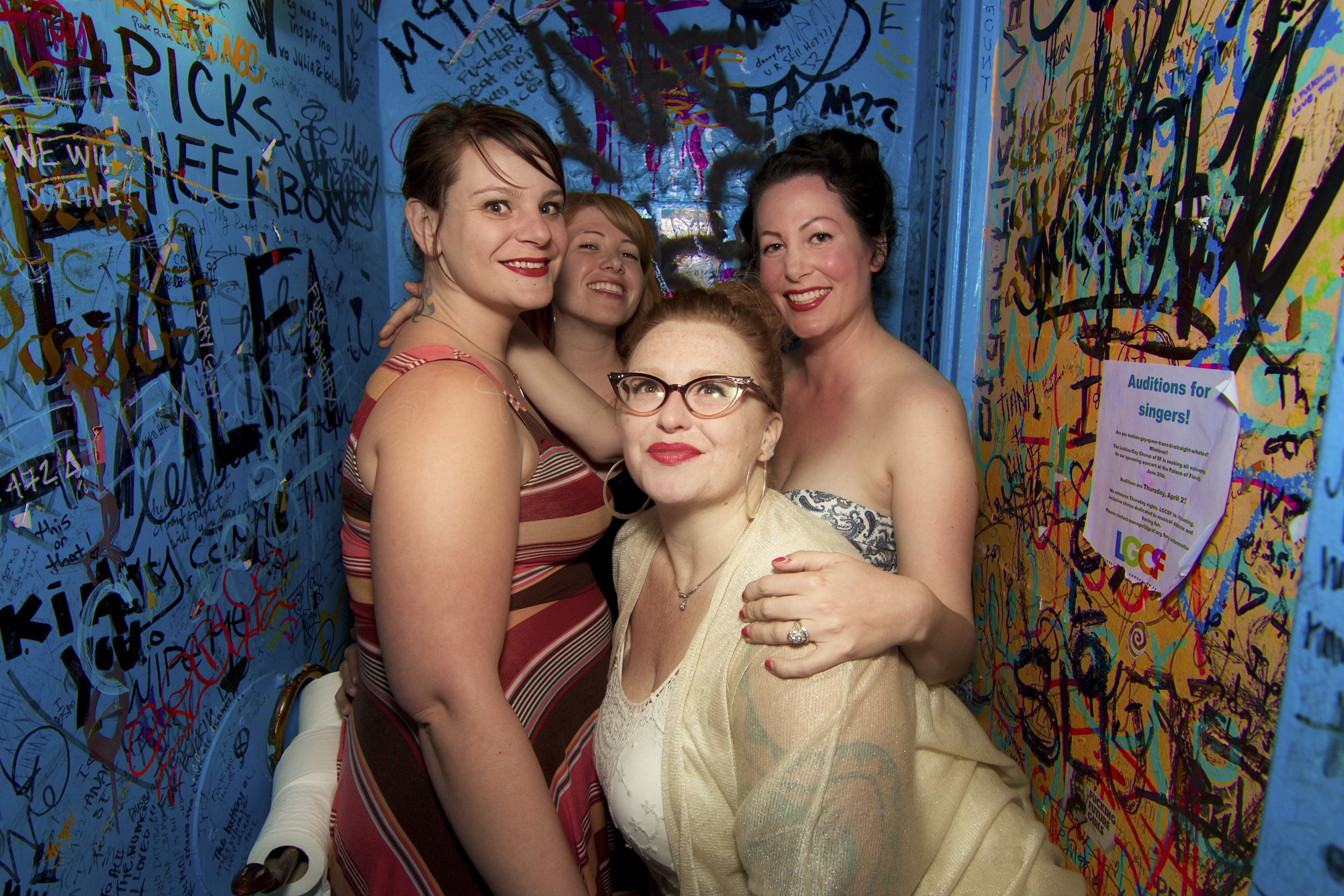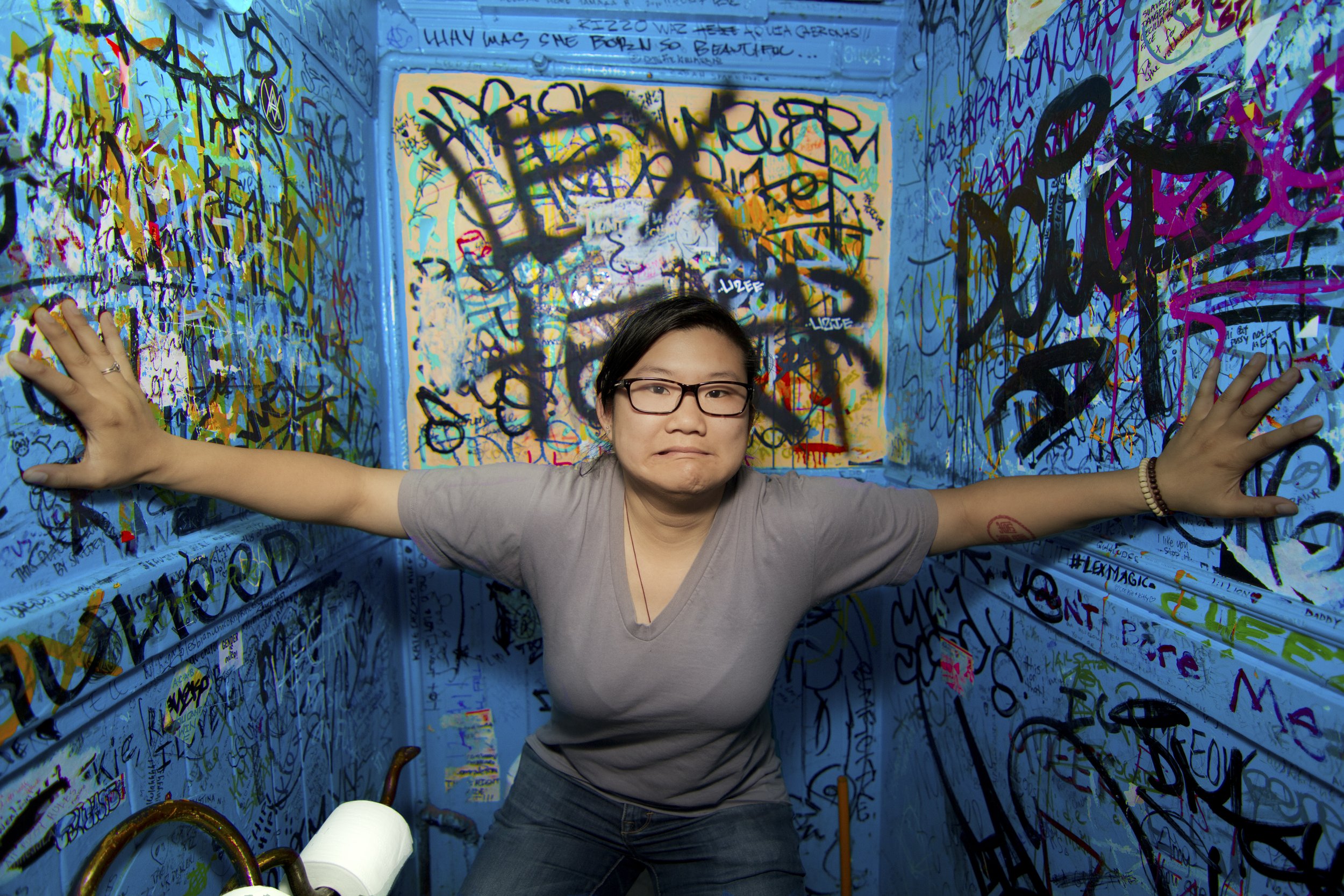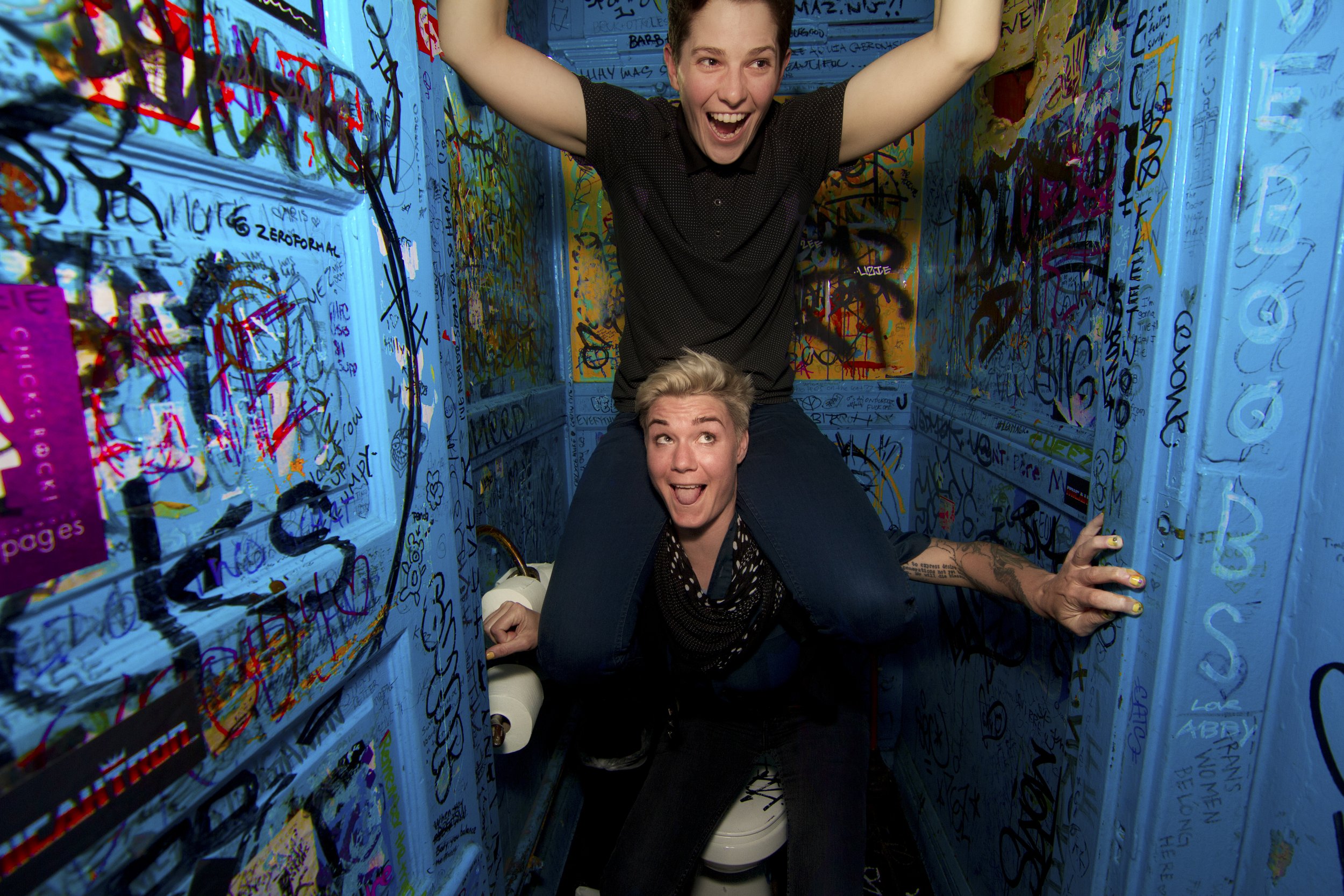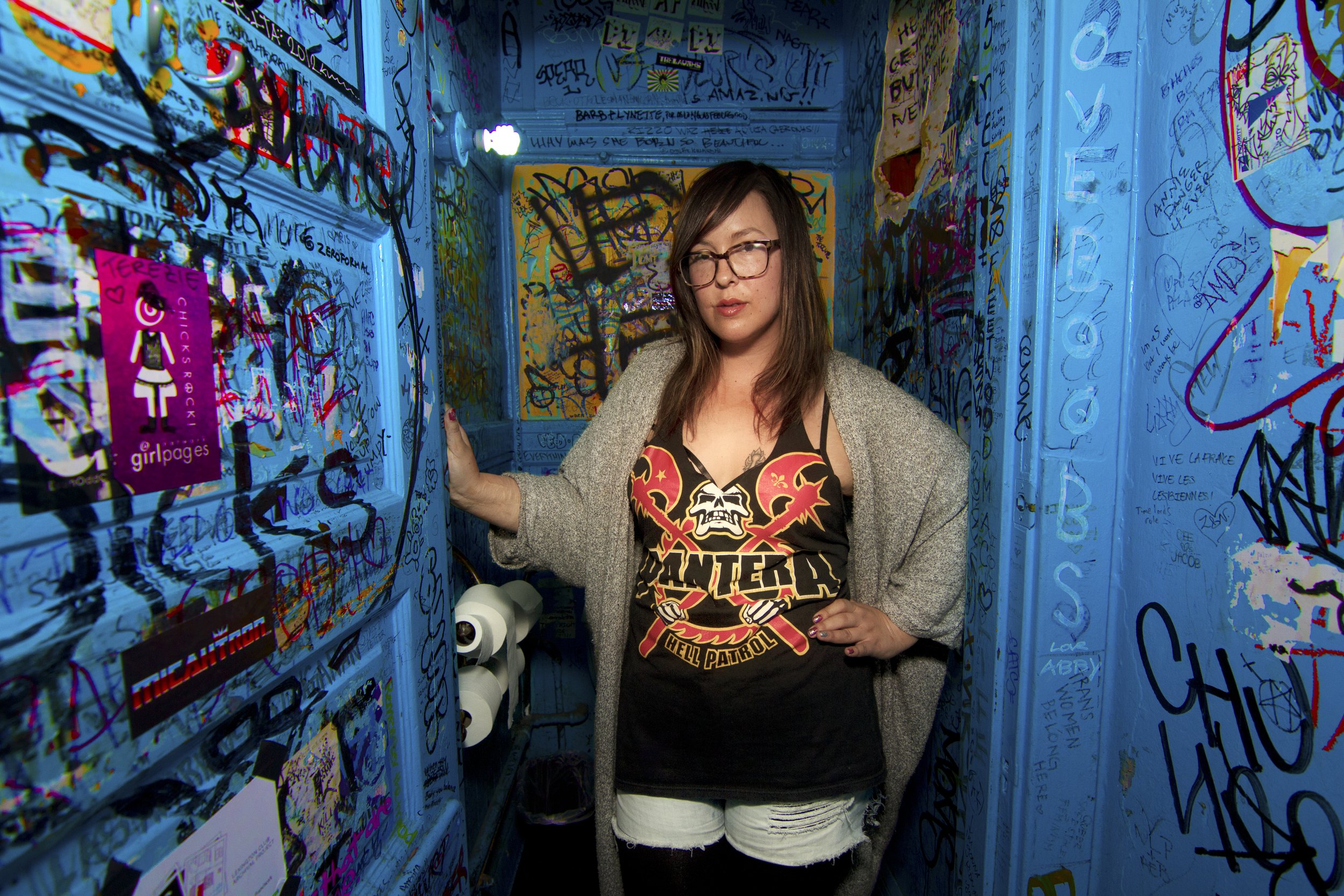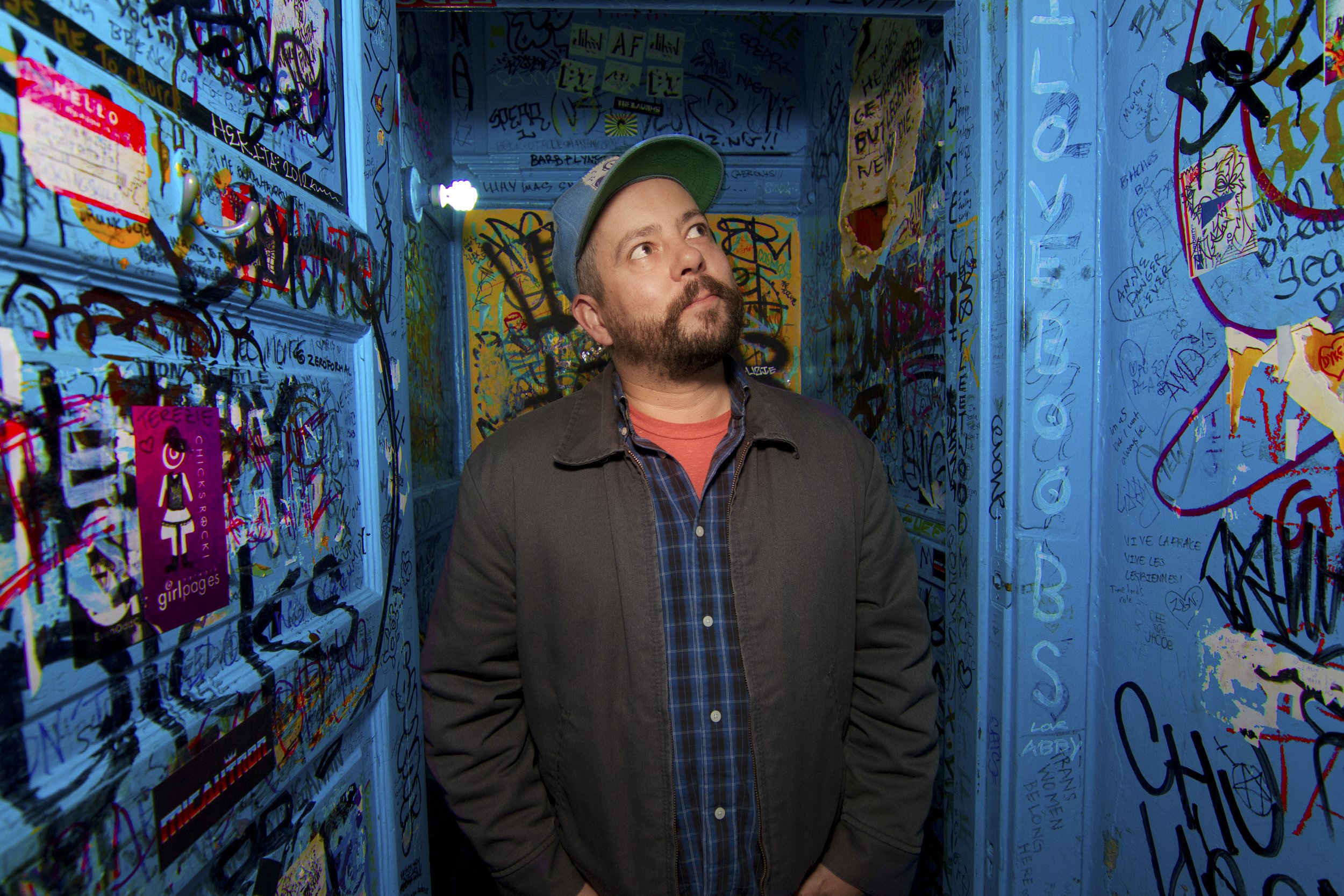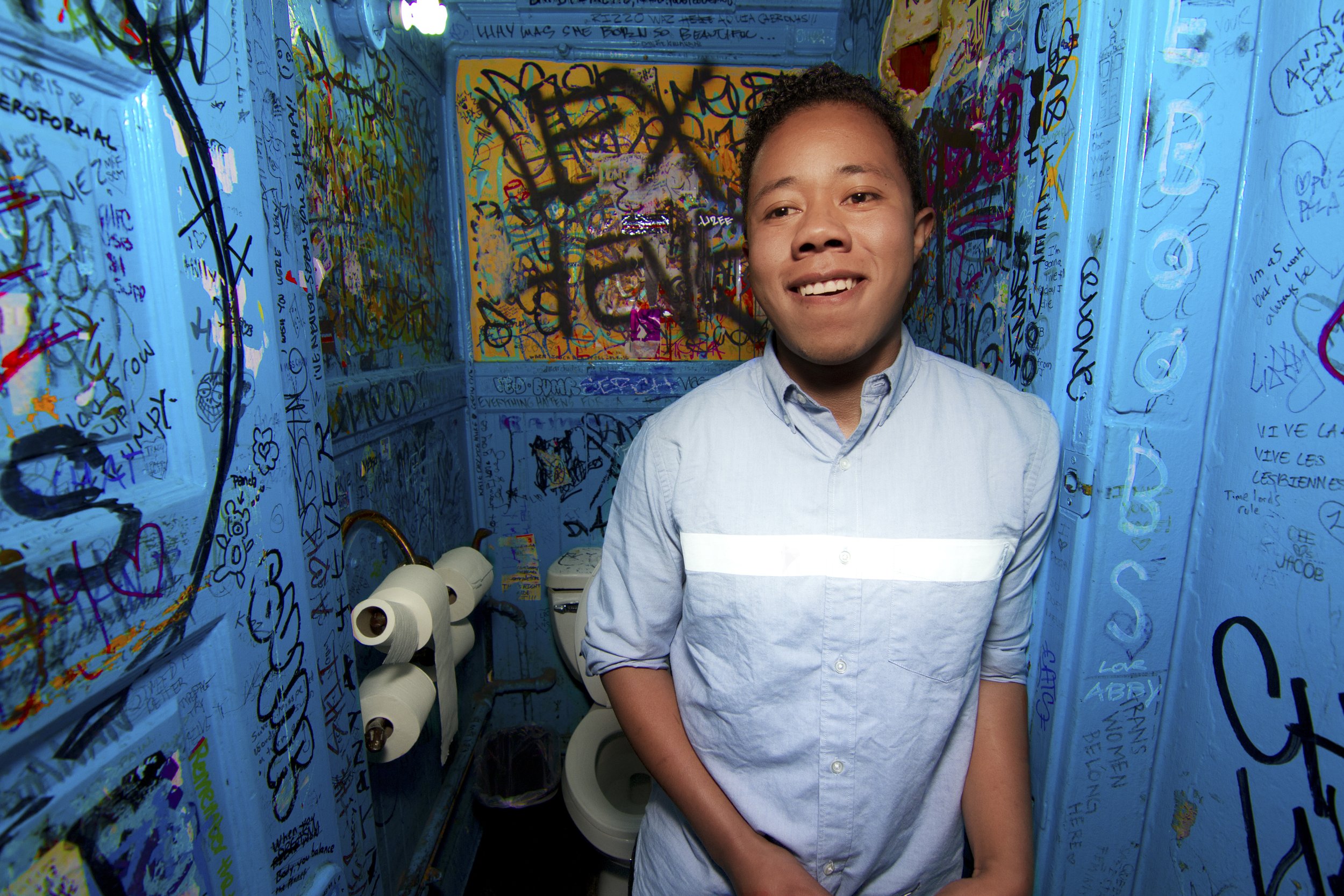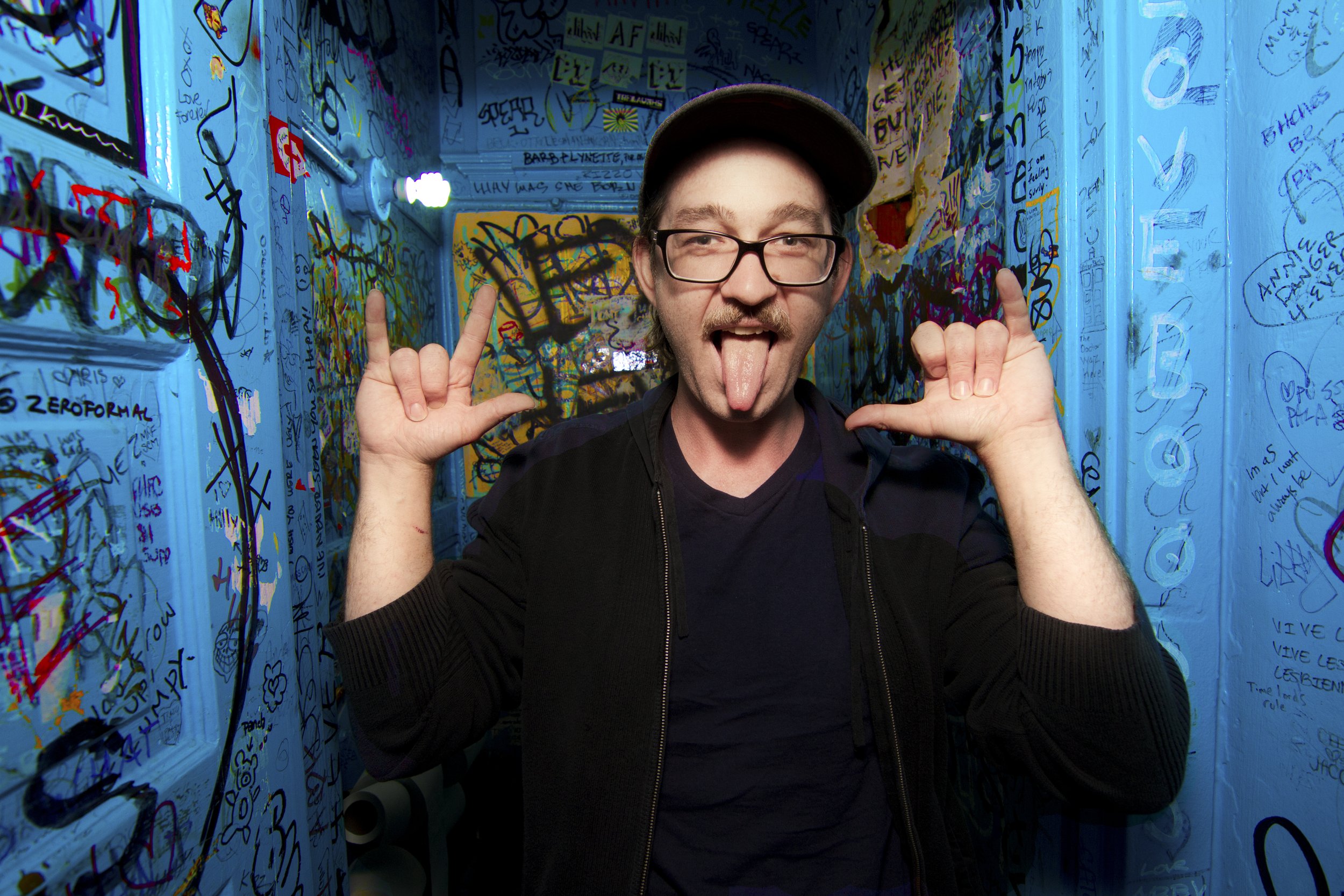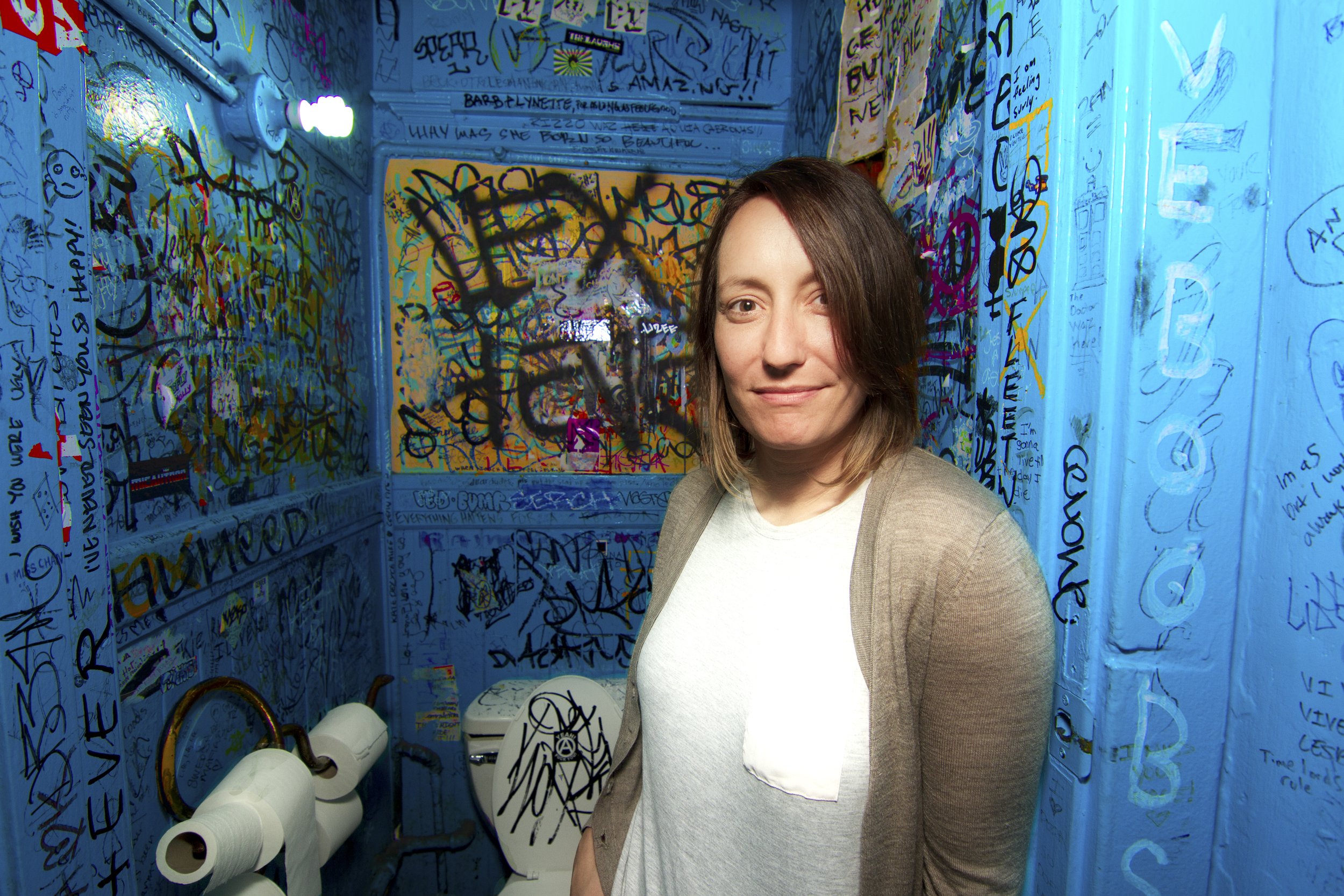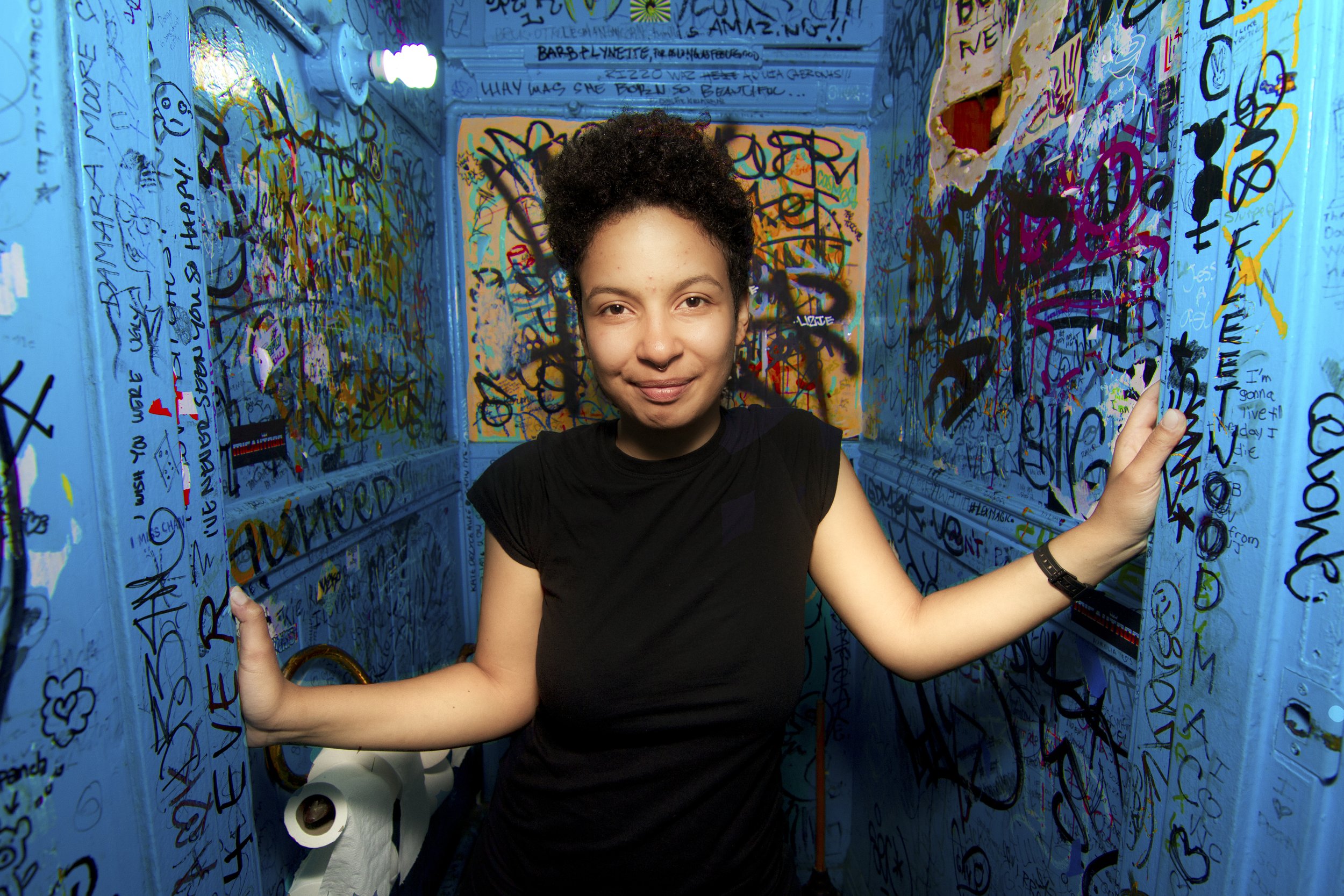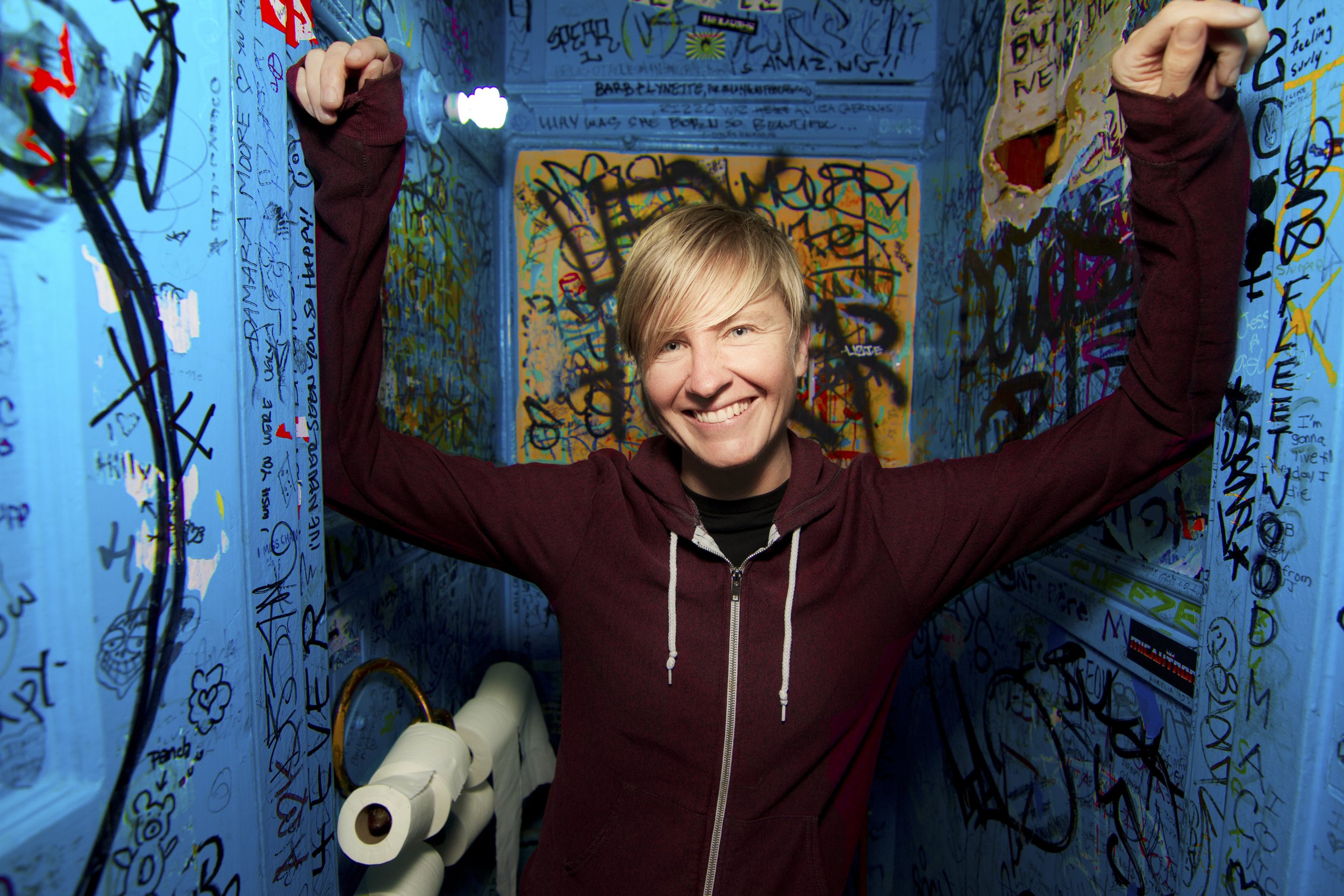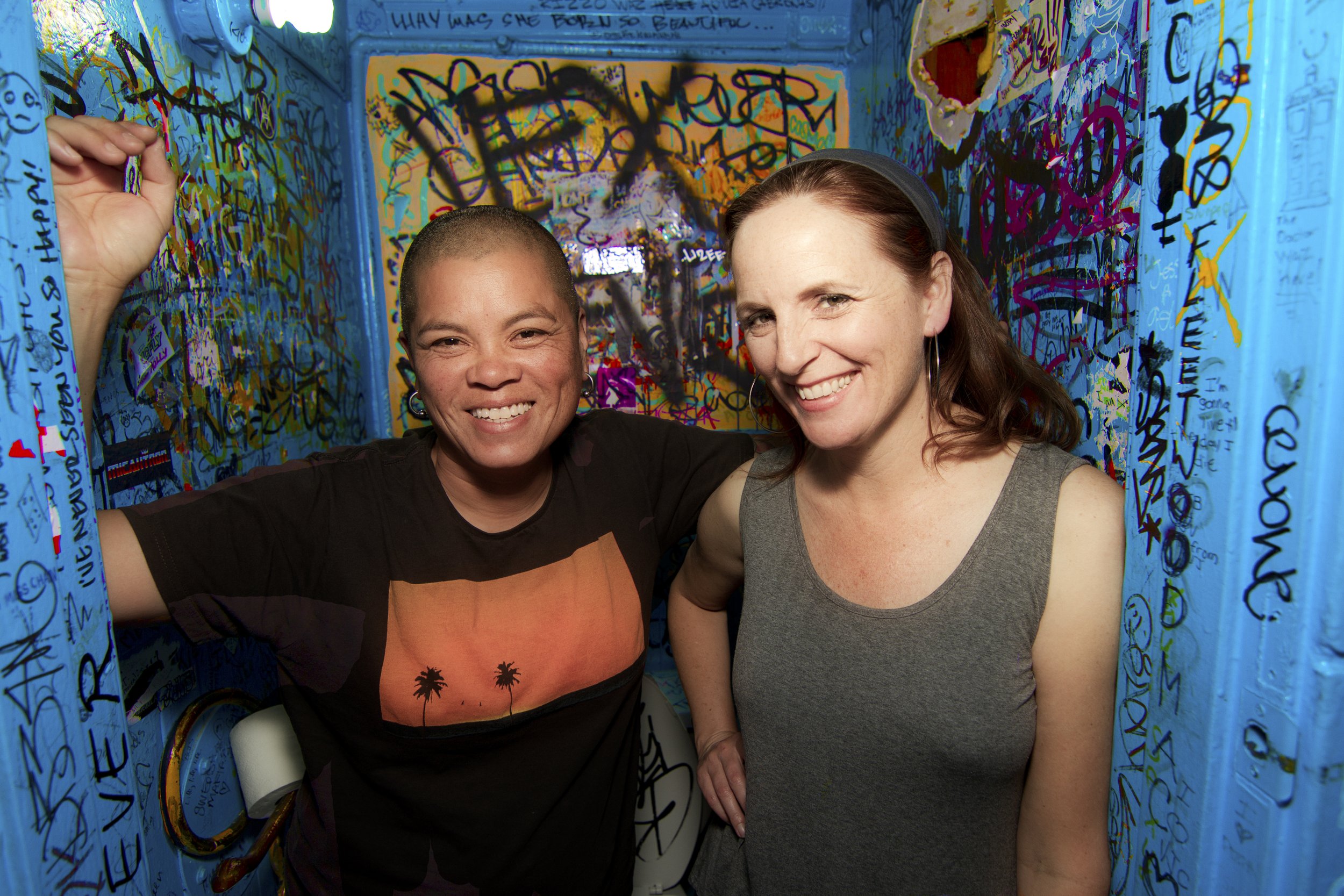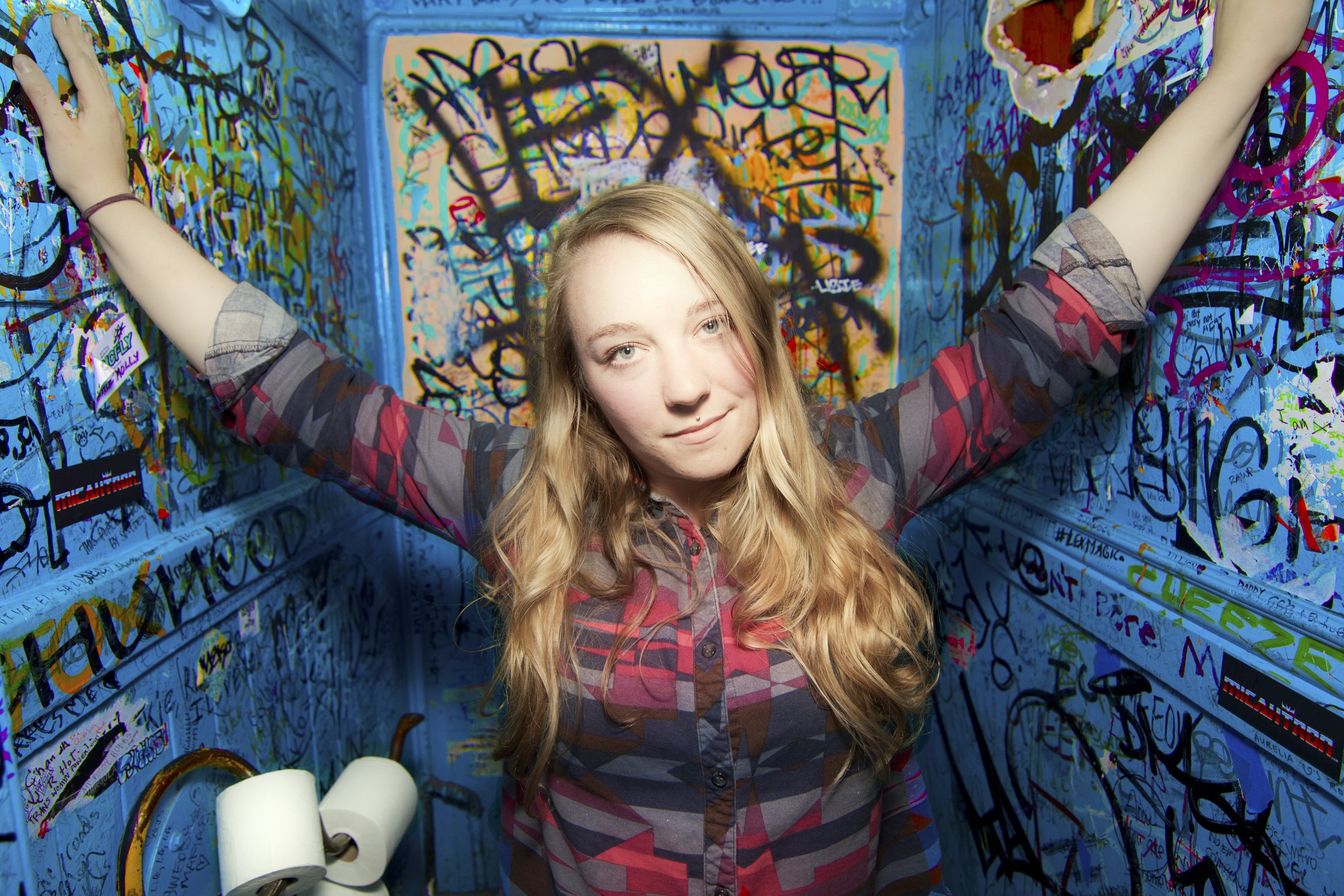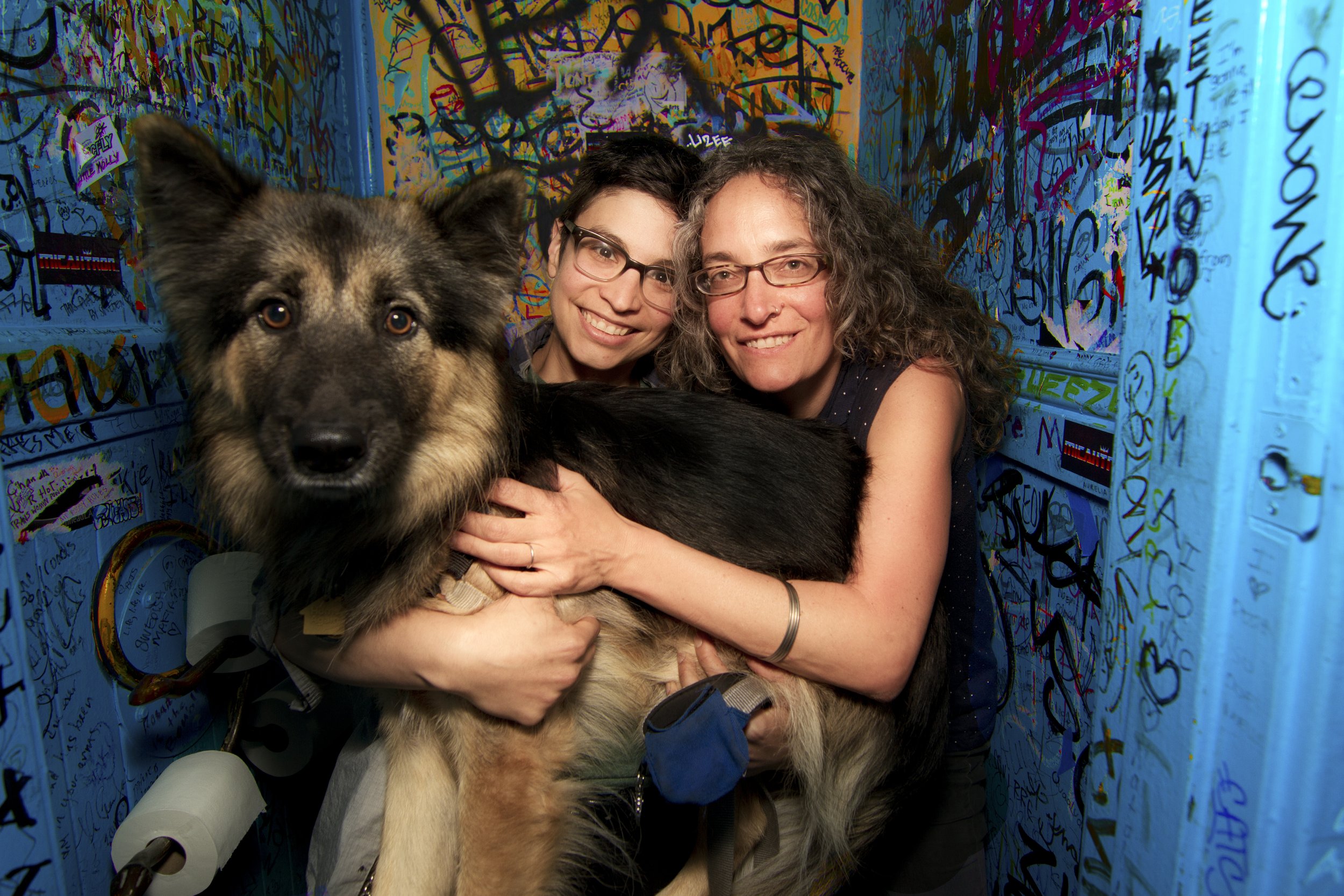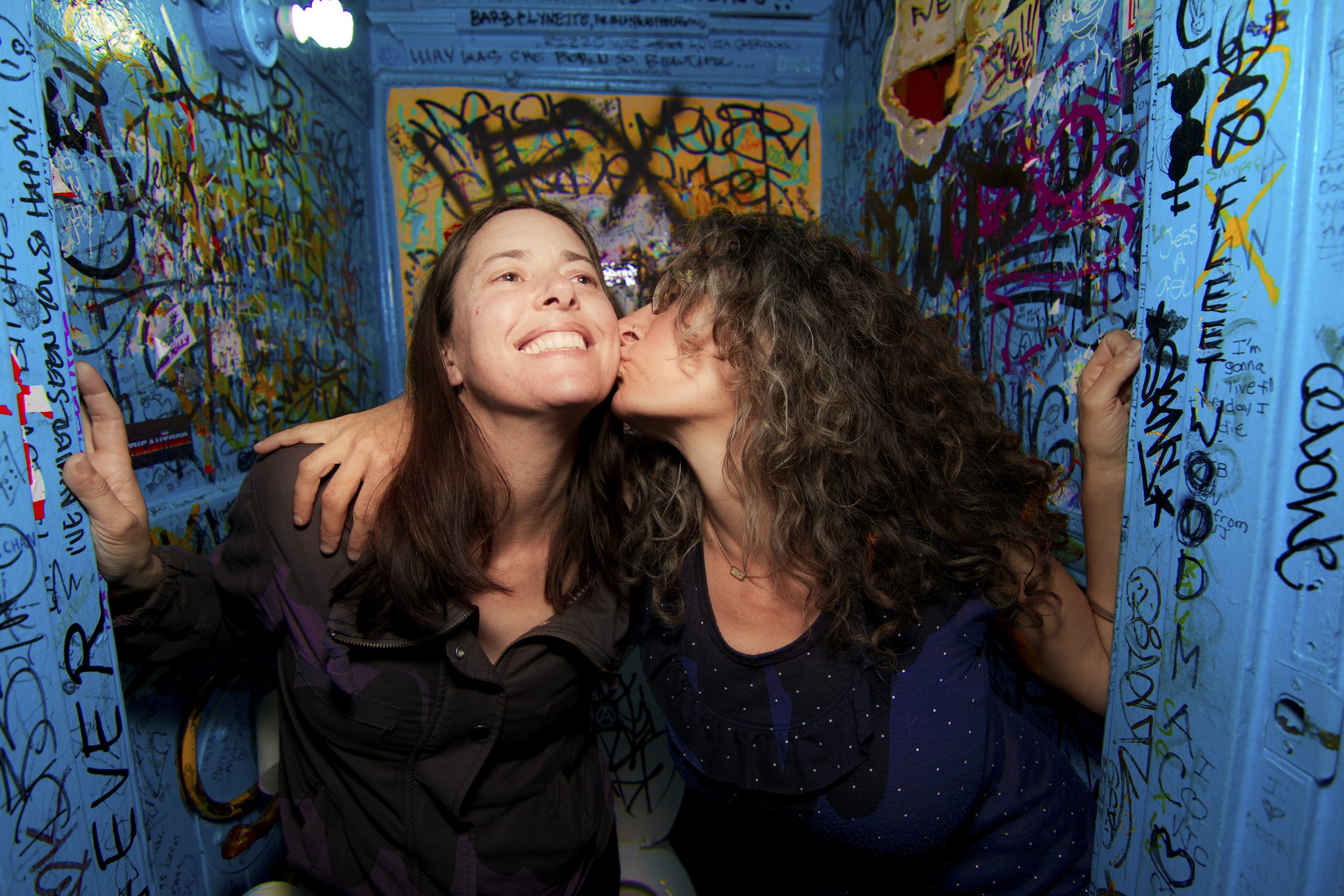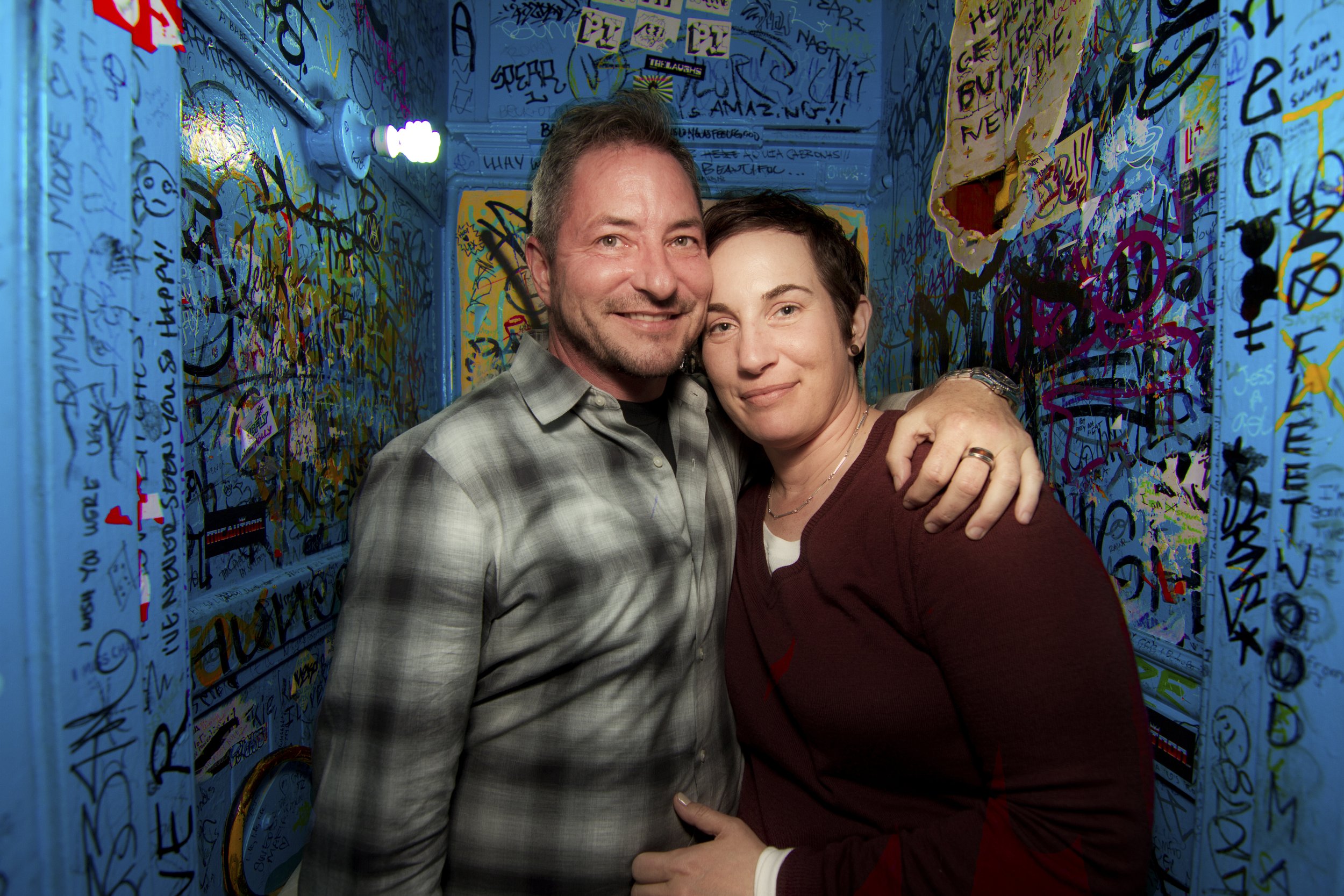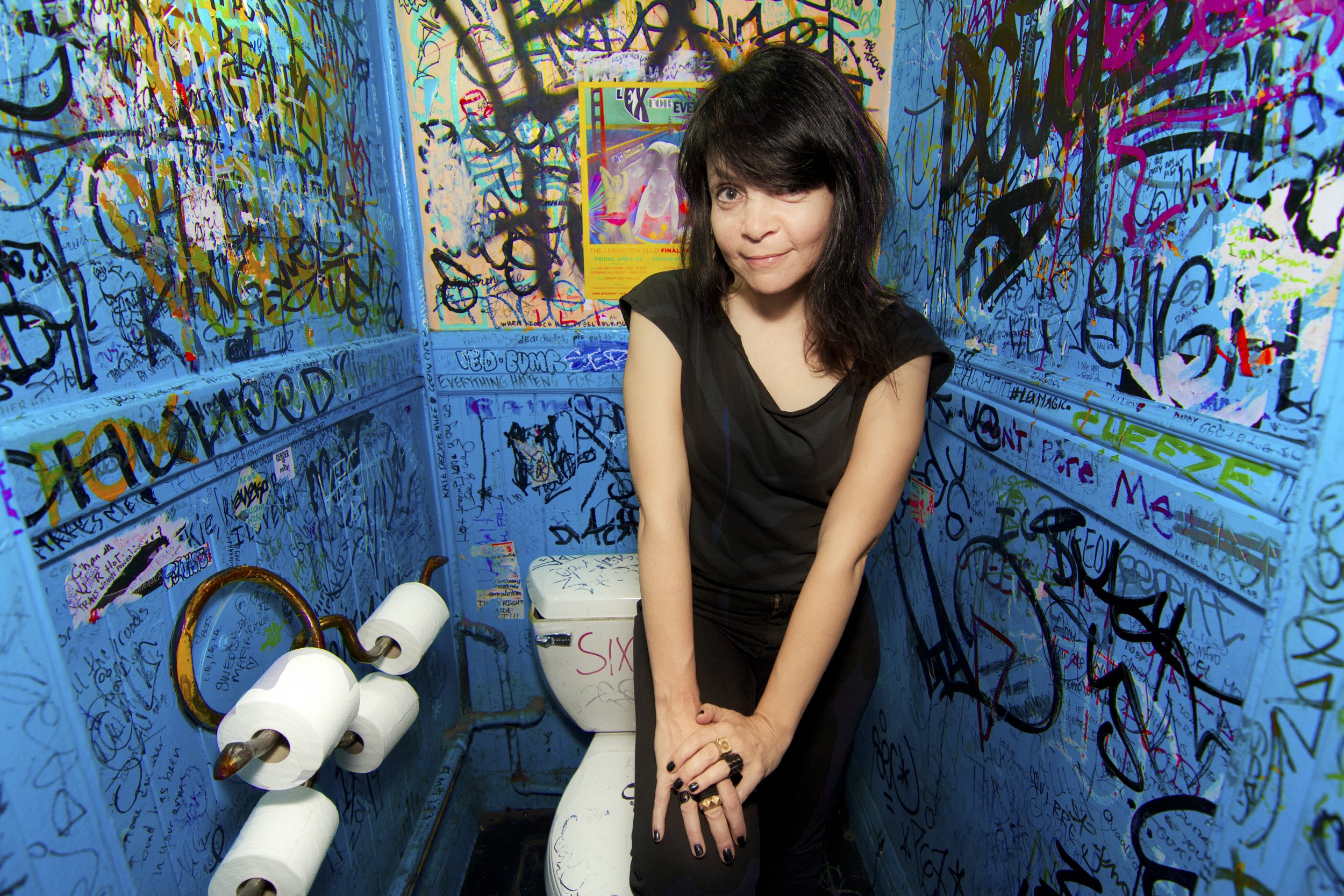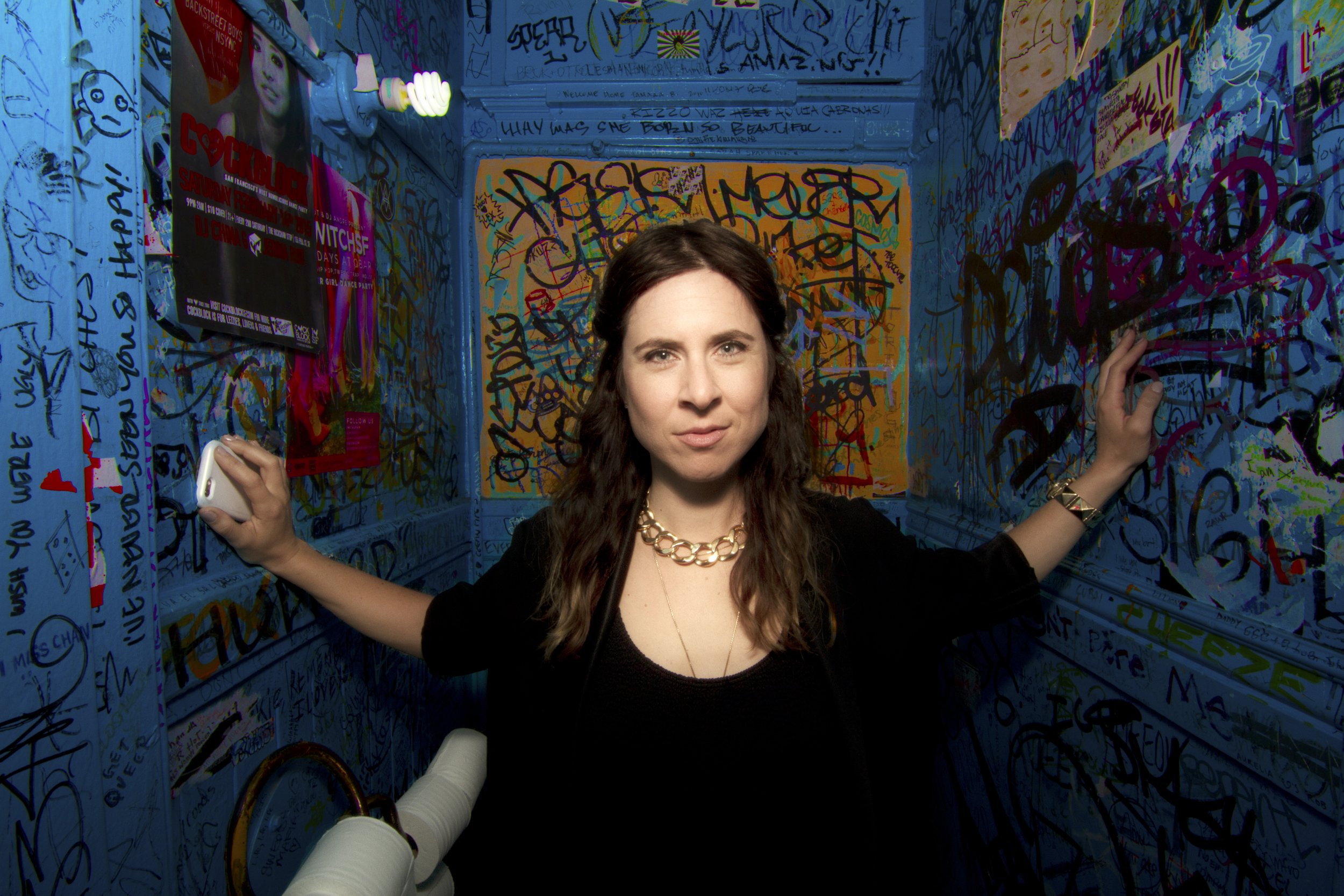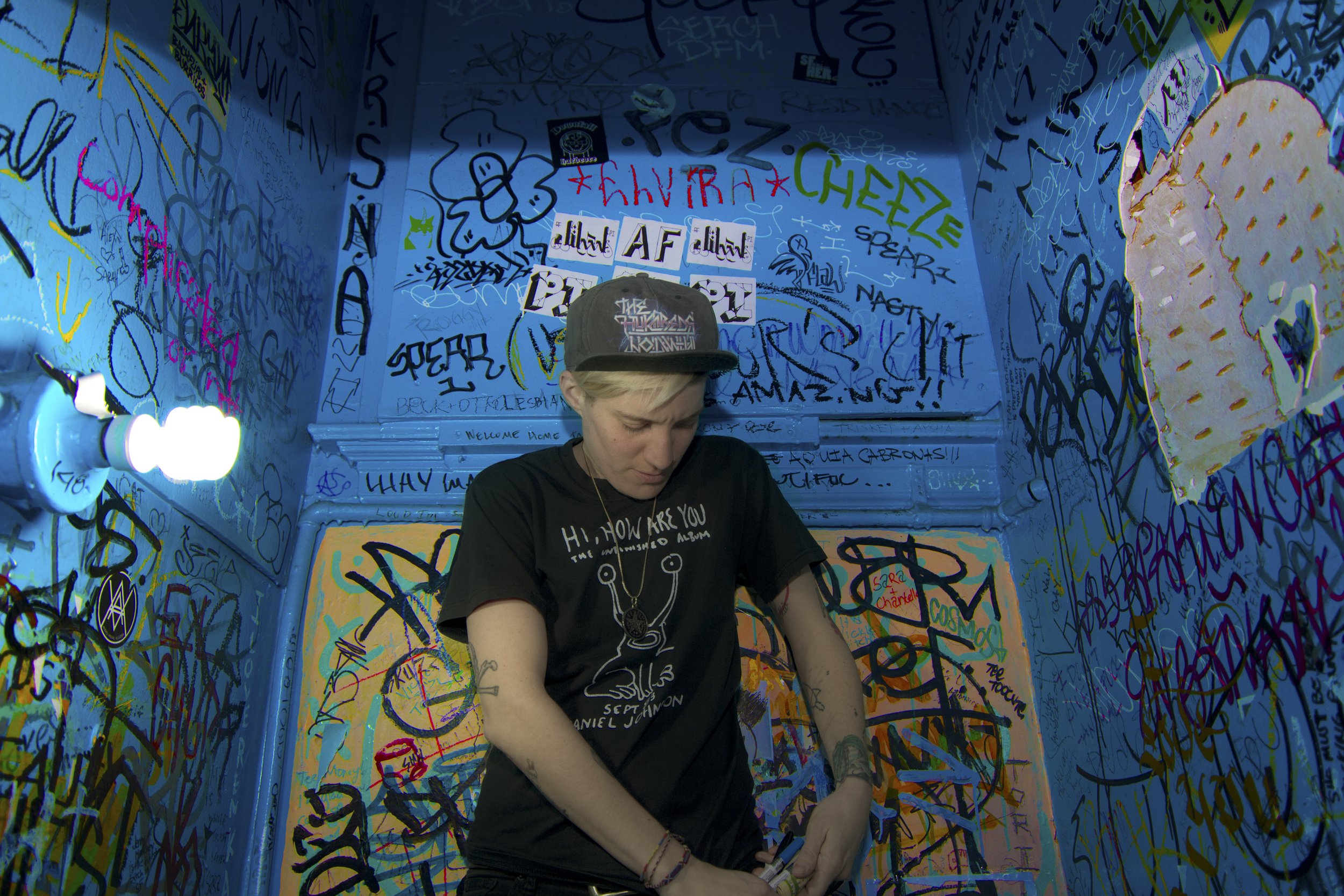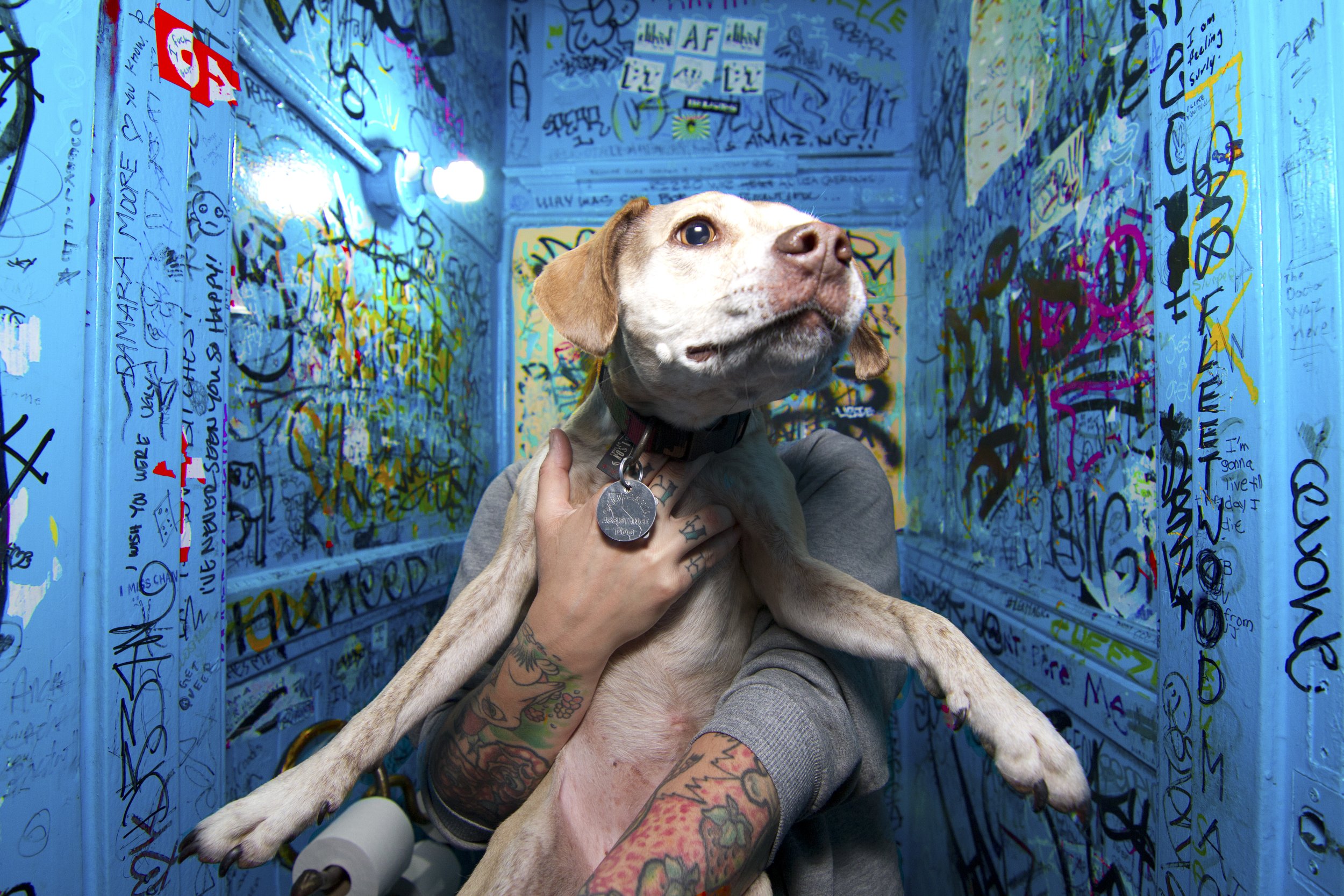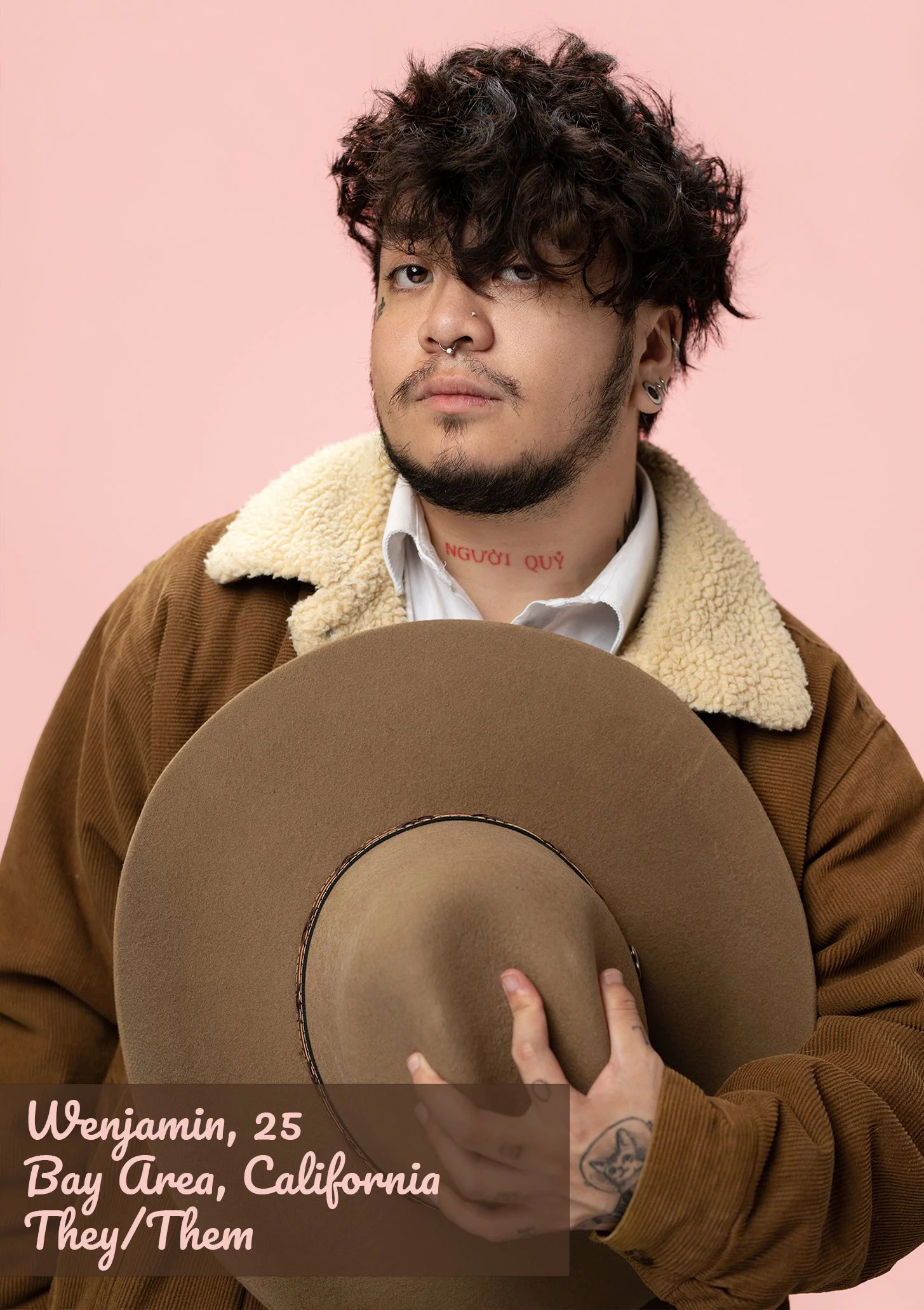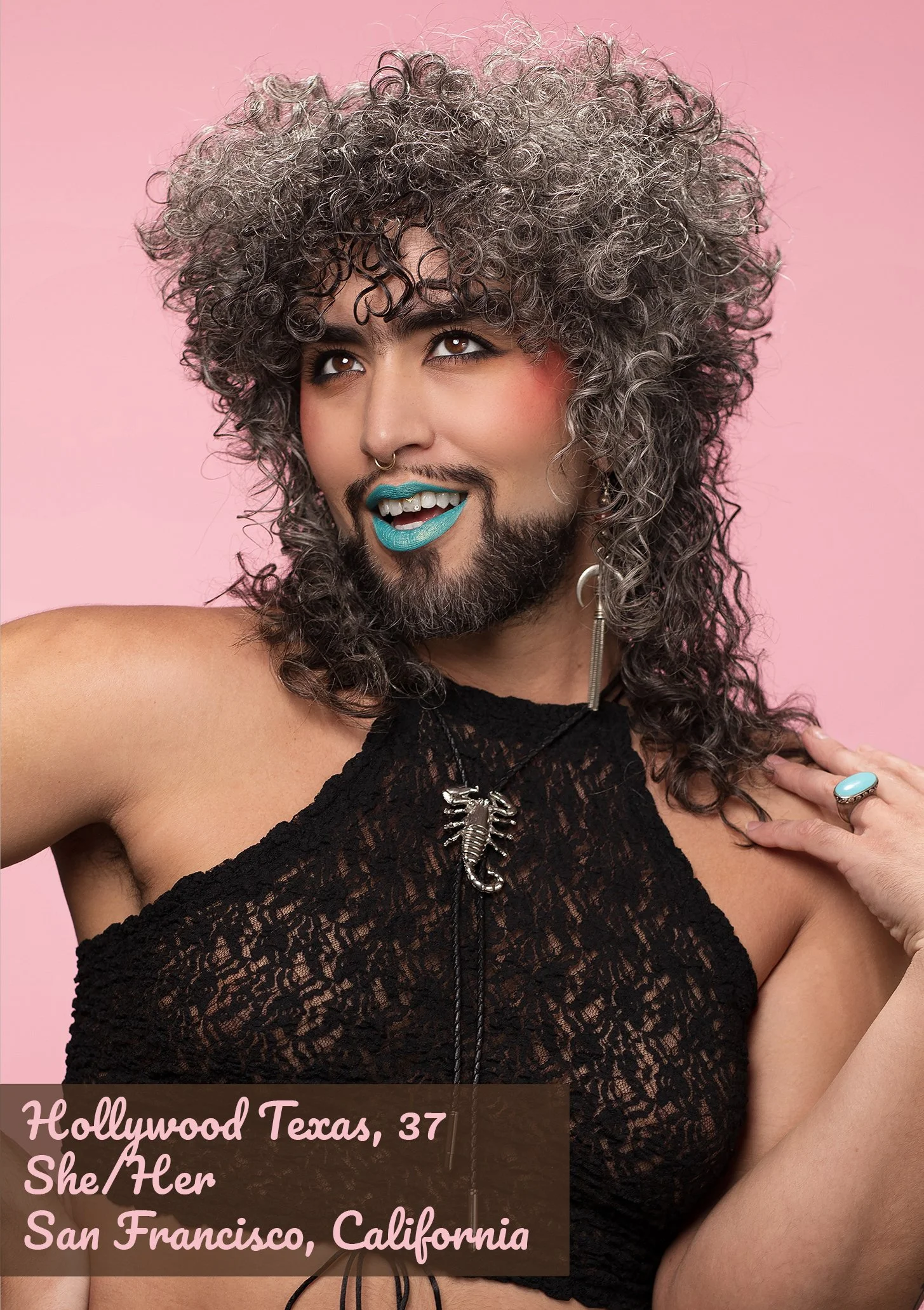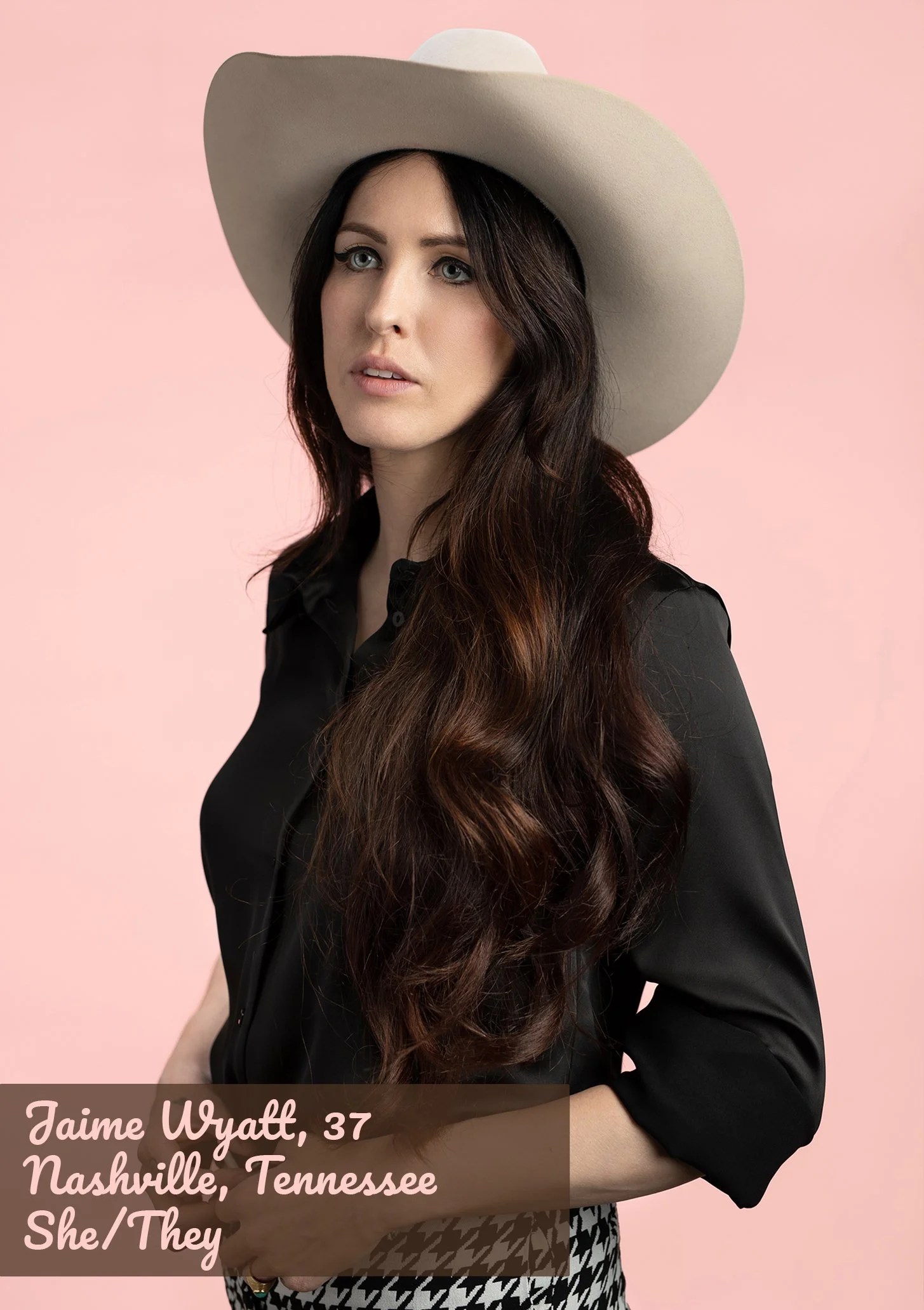Does “art” need to be in service of the greater good? No. Should it be? Probably.
Some of my practice is commercial – I enjoy the challenge of coming up with new ideas about how to advertise people and products, as well as the technical aspects involved with creating a look or feel. Some art I make purely for the joy I get through the process of creating it: for example, writing, playing and singing songs can be cathartic and doing it with other people can feel downright spiritual. But I feel like it would be a missed opportunity not to design some of my art practice to explicitly comment on the social issues I care about most deeply. In 2014, I co-founded the Lexington Club Archival Project, and began using my camera to document a disappearing community in San Francisco. By the time I left the project in 2020, I had developed “Queer From Here,” a series that explores the diverse experiences of what it means to be queer in America. The project is ongoing. My goal is threefold: for those in front of my camera to feel seen and heard, for the queer viewership at large to feel more connected, and for folks from outside the lgbtqia+ community to gain an understanding of what life might be like if they were themselves queer. For all of our modern “interconnectedness” – as a people, as a nation – we are fractured, and I believe that art can heal us.
-Lauren
Queer From Here
An ongoing series exploring modern queer identity. To visit the archive, click here.
-

-
Wenjamin Nguyen, 25 They/Them
Bay Area, California
I’m a nonbinary model and country boy hauled over from North Carolina in hopes to capture some big dreams here in California. I was born in San Francisco, but due to financial displacement my family had relocate to the South were it was considerably cheaper (in caveat, socially harder). Upon finally coming back, I hadn’t realised a world full of open queerness could exist in such a way. It opened my eyes to potential of new community, prospects of new friends, and for once in my life: stability.
I’d like to believe I have gay face to the queers who can pick it up, and a “huh what’s his problem” kind of face to the cishet audience! Growing up mixed Asian in the diaspora of the South was incredibly isolating, so I looked toward my queer community in North Carolina for support and understanding in times of growing confusion. Even today, I still adjust my levels of “queerness” out of safety in many social situations due the oppressive upbringing.
During the winter of 2021 and early 2022, I was homeless due to a combination of drug abuse, mental health decline, and an eventual eviction due to standing up for my queerness against my landlord. It opened my eyes to what was important beyond money and frivolous materialism (an image incredibly sought after in the Bay)— and that was reconnecting with the love in the queer community. My community of friends and chosen family helped pick me back up when I had no one and literally nothing left, and for that I am forever blessed and thankful. Everyday, I looking for every which way to give back to the community to the best of my abilities.
-

-
Hollywood Texas, 37 She/Her
San Francisco, California
I spent much of my life trying to hide it though, hoping one day a place in my life would appear which would feel safe and less dangerous to exist. As a kid I spent lots of time in rural, military towns across the US, yearning for the time I would be able to return to my home in The Bay Area. Though I was able to express some authenticity through rock n roll fashion and local punk scene scenarios, it was never enough for me to feel truly happy and embodied. In my mid-late twenties, I finally made my way into the queer nightlife scene of San Francisco, working behind a bar in the Castro, immersed in a sea of certified freaks of nature, drag queens and other professional weird folk.
As the layers of inhibition began to wear off, I fearfully emerged into myself with the encouragement and guidance of my most ancient and wise, queerest of ancestors, who I had reconnected with in 2017. As a queer, trans-femme, radical, indigenous, non-binary bearded woman of The First Gender, I have come out of so many closets that I don’t believe my coming out process will ever truly end. I am an artist and creator, a process not a product, and since I still have yet to encounter a truly “safe space” for me to be ME, my process will forever be adorned with the reverence for goddesses of beauty and war. Today in 2022, I encounter my enemy each day I choose to leave the house and enter the world authentically. Yes, on the streets of San Francisco, I am accosted, threatened, spat on, assaulted, teased, threatened and shamed; but I am also adored, complimented, hit-on, praised, cherished and encouraged to continue being a sacred space called Hollywood Texas.
-

-
Jaime Wyatt, 37 She/They
Nashville, Tennessee
I think sometimes I have gay face, but mostly I have a gay energy and a gay voice. It gets lower or higher when I'm playing up or down my queerness, but it's not something I do consciously. I am more shy and reserved around non-queer people and more open and outgoing around queer people.
I identify as non-binary.
My gender expression definitely influences how I move through the world. I wear make up and red lipstick, as I was raised with all women in a very femme, fashion forward family, but I do not wear dresses or skirts. But my eye liner is extreme and exaggerated, as I feel it's more an expression of the character I created to play on stage and in my writing. I've been wearing a cowboy hat, cowboy boots and jeans since I was 4 or 5 years old, because I believe I've always been a cowboy and a country singer. It doesn't feel fitting when people call me a cowgirl, but I don't identify as trans. People who are close to me end up calling me James, including my family who have been calling me James since I was little.
I met my romantic partner through mutual queer friends in Nashville, but I feel that was lucky, because I haven't fully found my queer community in Nashville yet. It's a little harder to be queer in Nashville than Los Angeles and I've experienced some homophobia in the country music industry here and at shows in other Southern cities.
Never a Cover
Commissioned by the San Francisco International Film Festival in 2015, this short film documents the last days of The Lexington Club, San Francisco’s iconic dyke bar that was owned and operated by Lila Thirkield from 1997 to April 2015.
Lex Bathroom Portraits
Lexington Club patrons photographed between 2014-2015.
